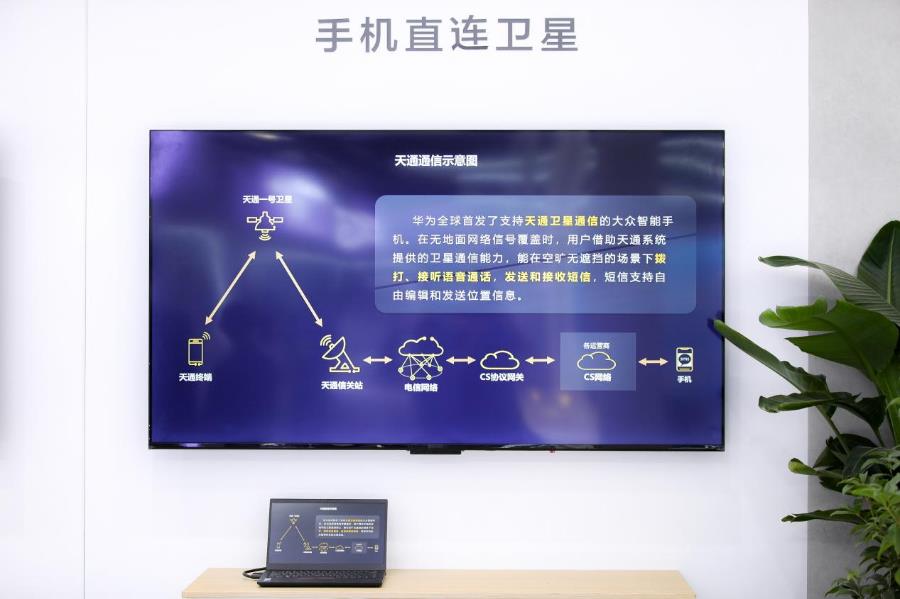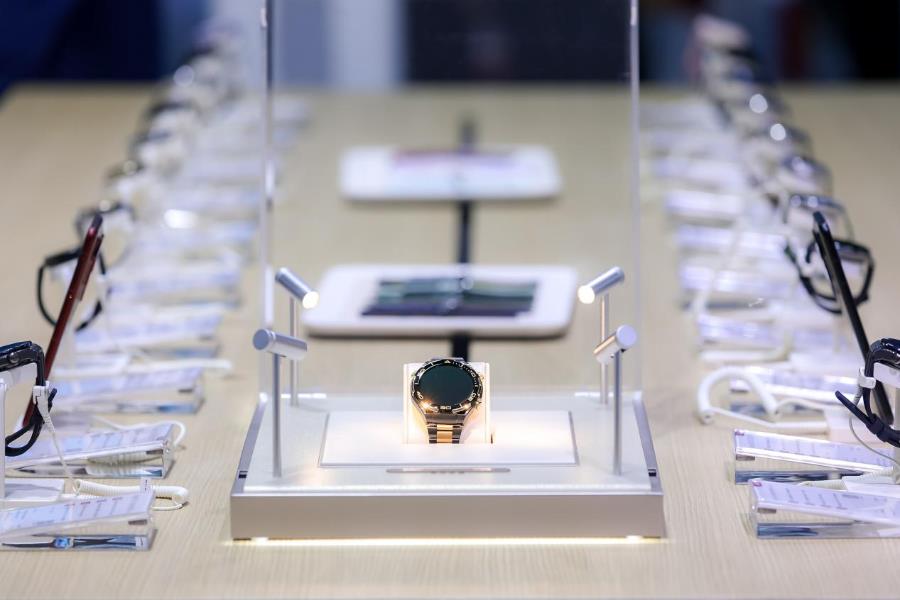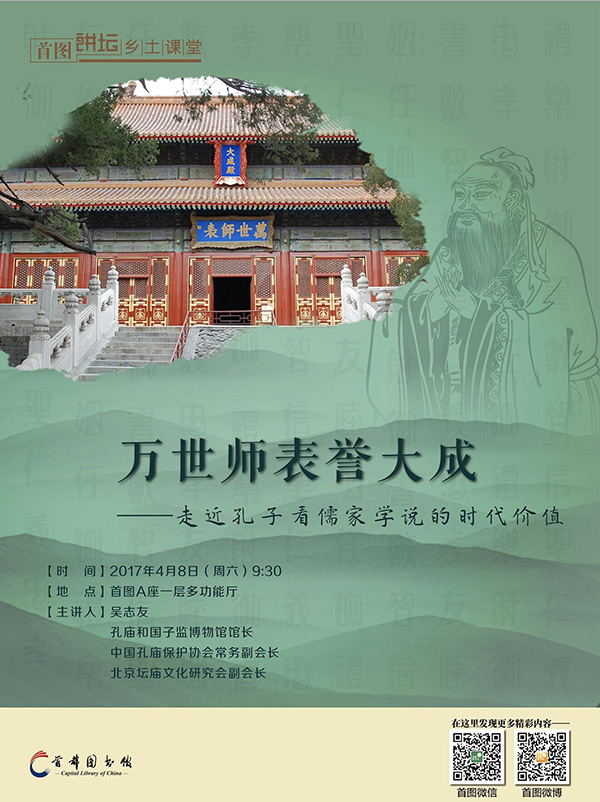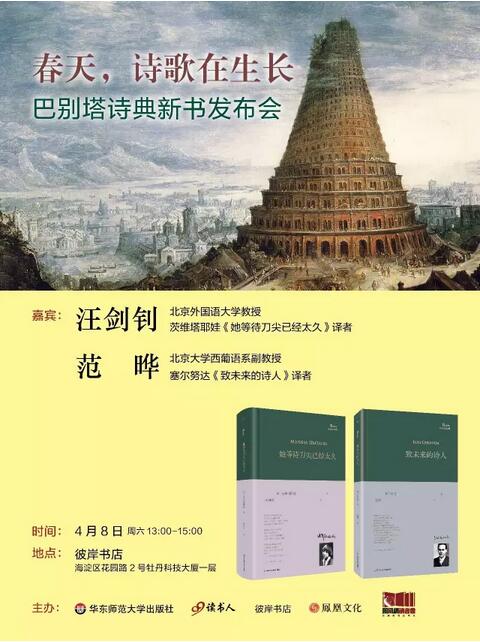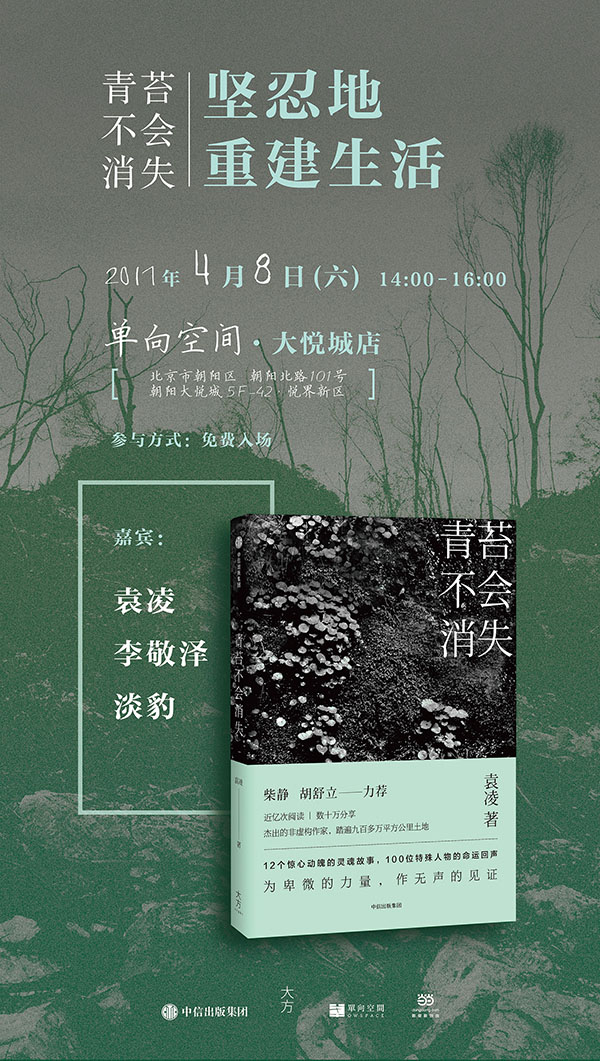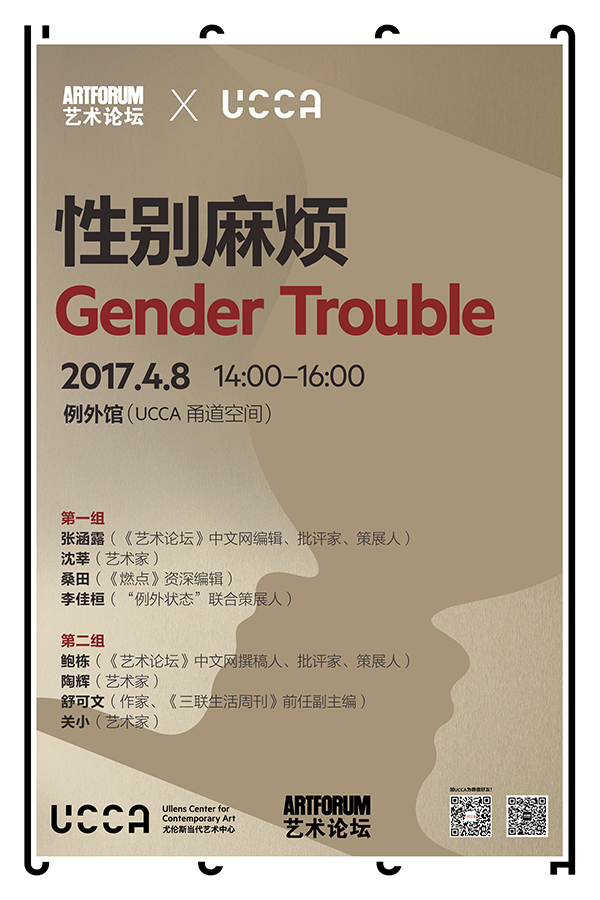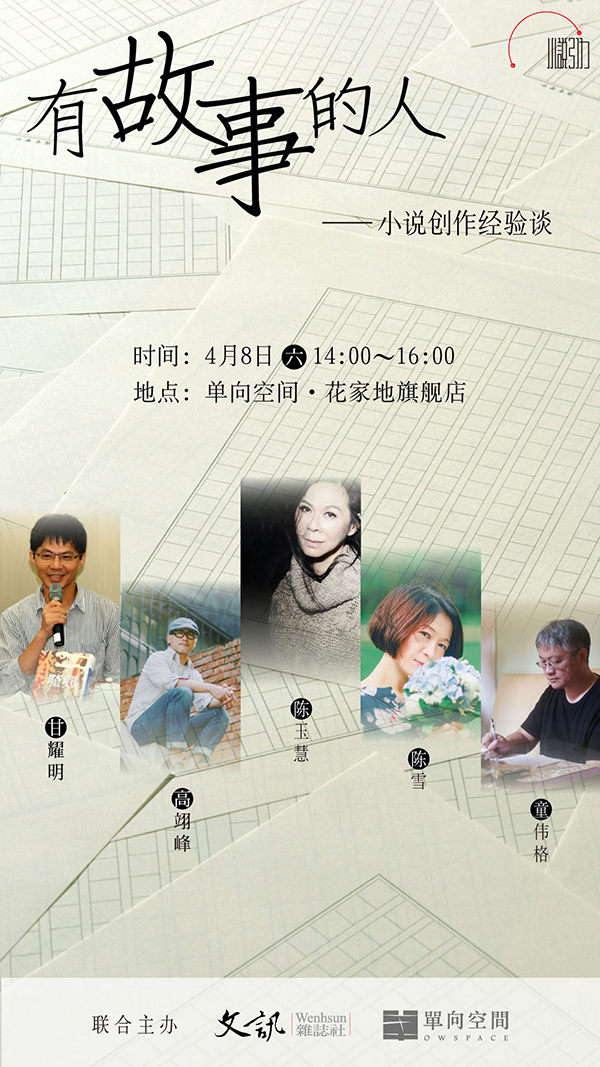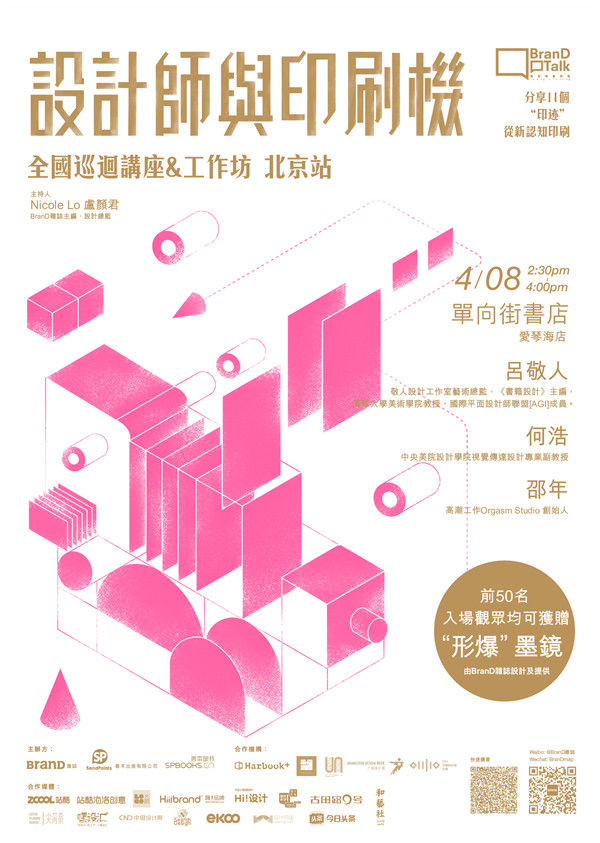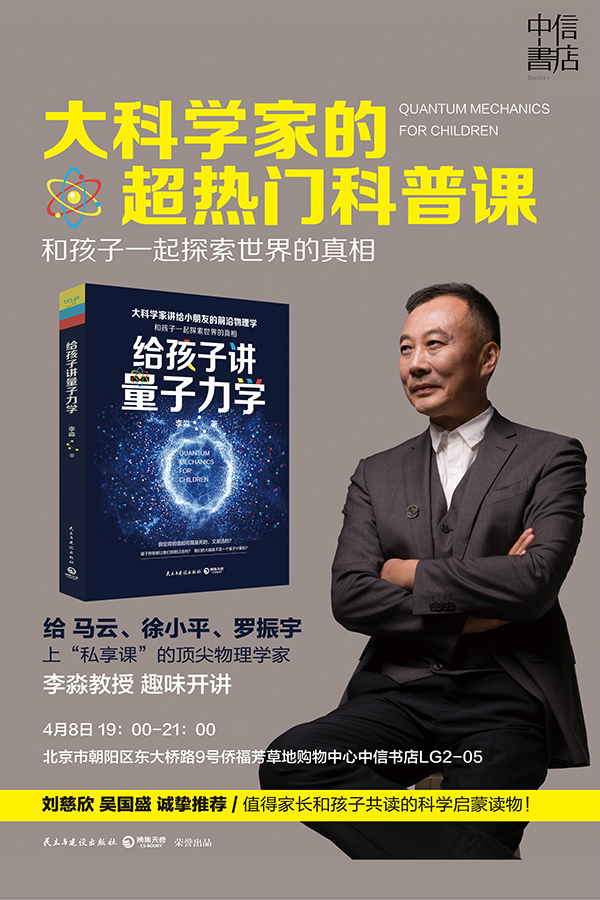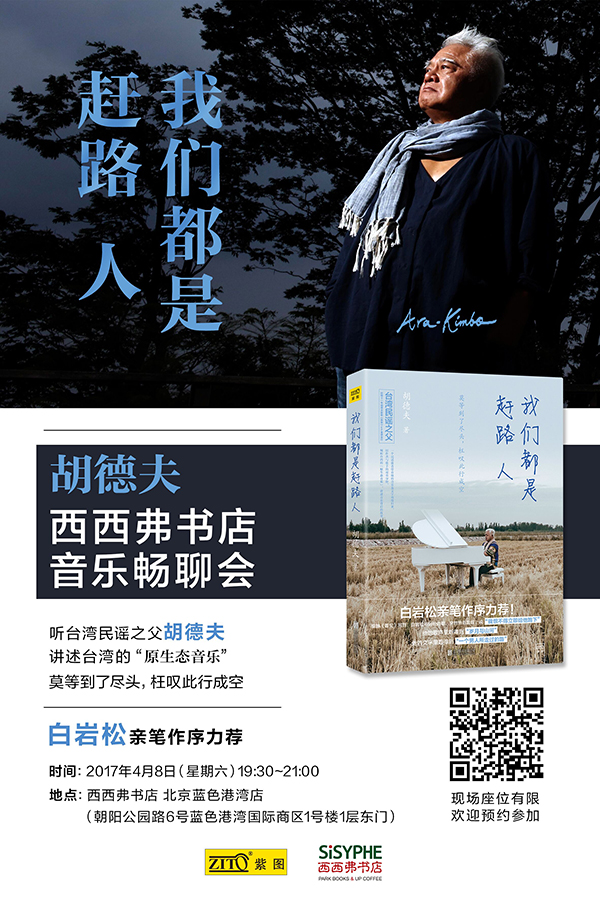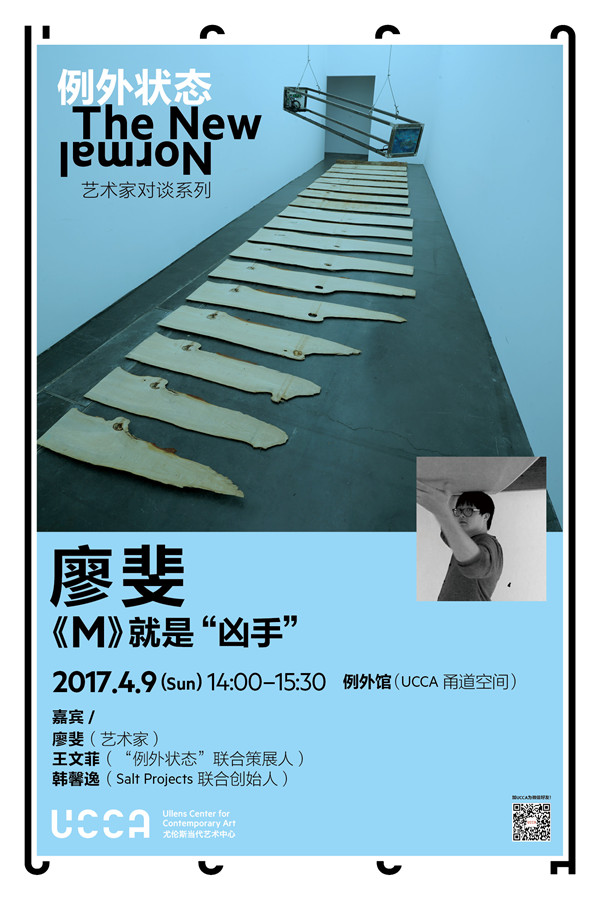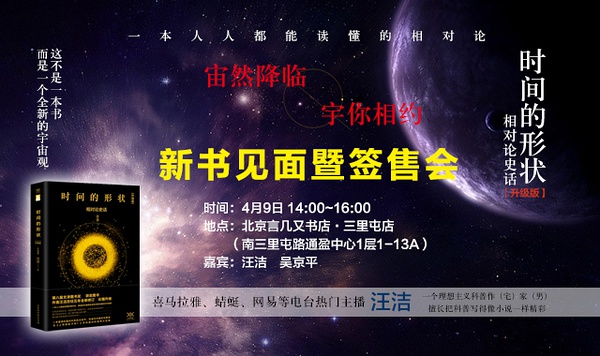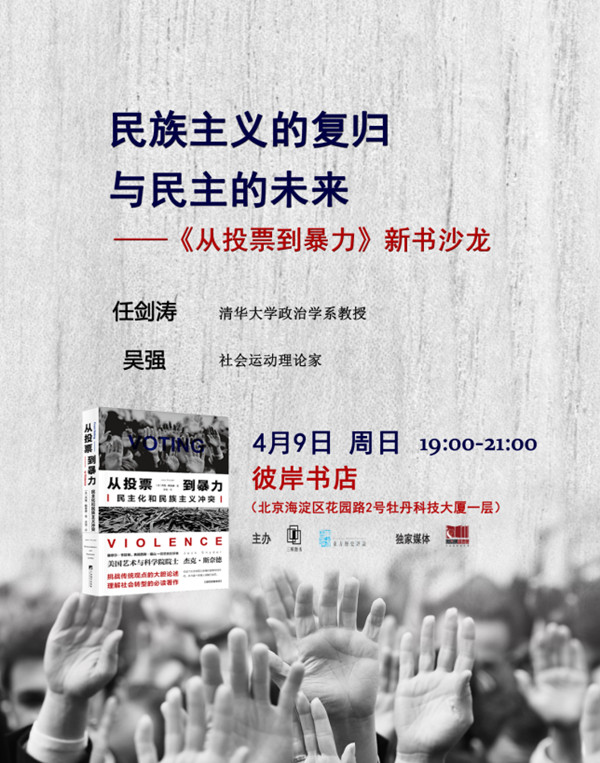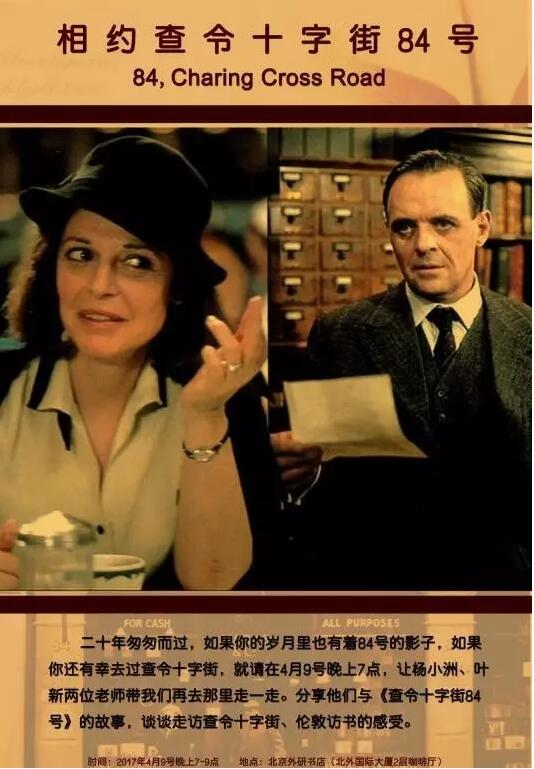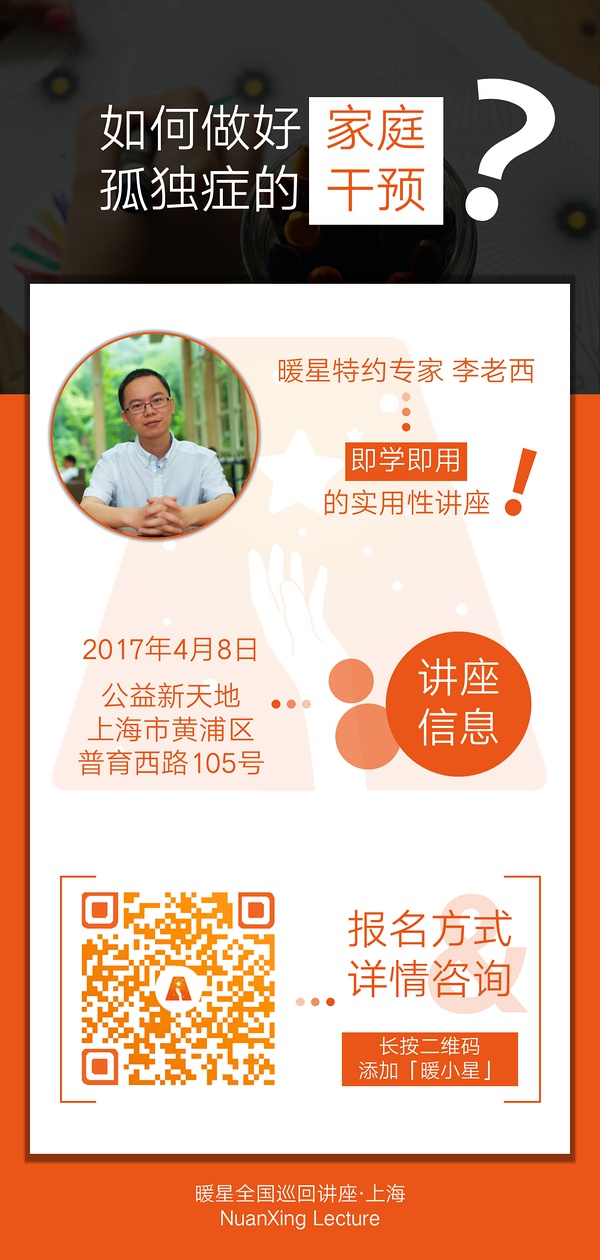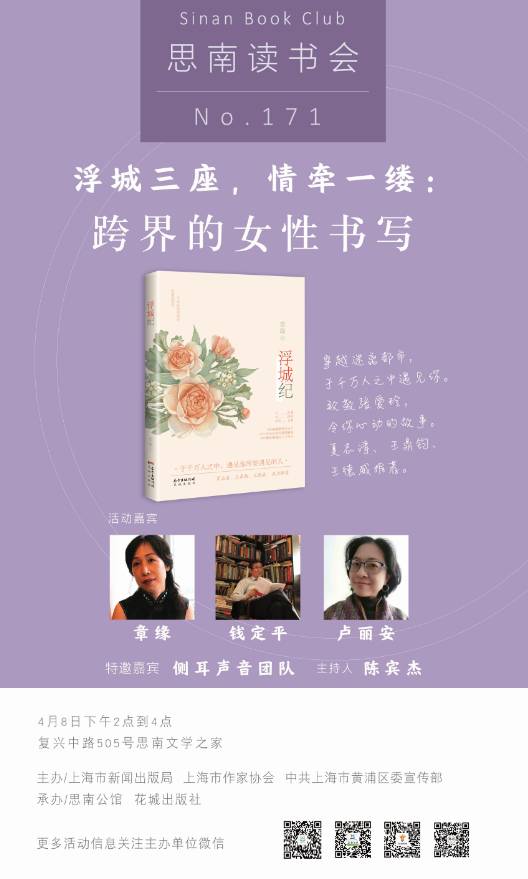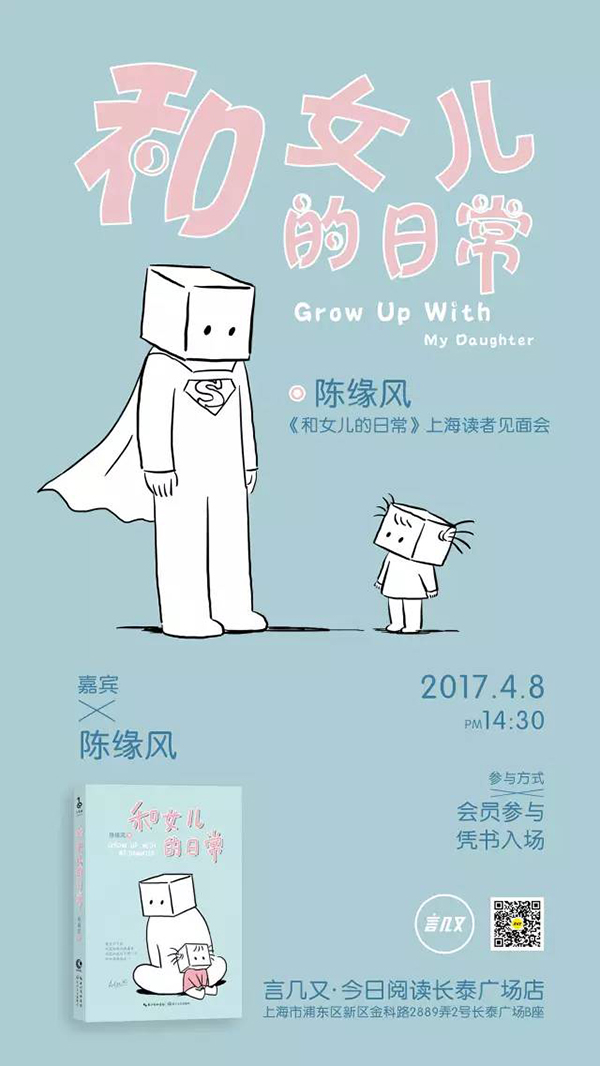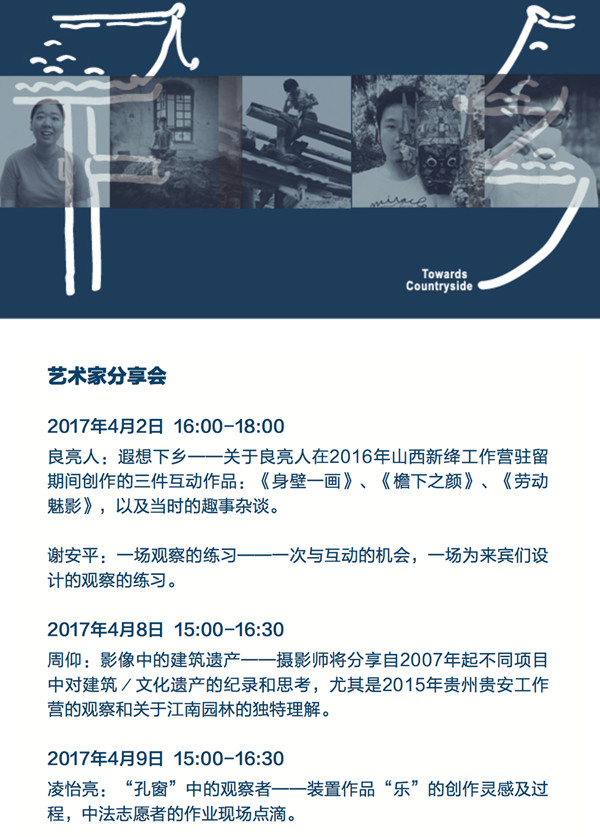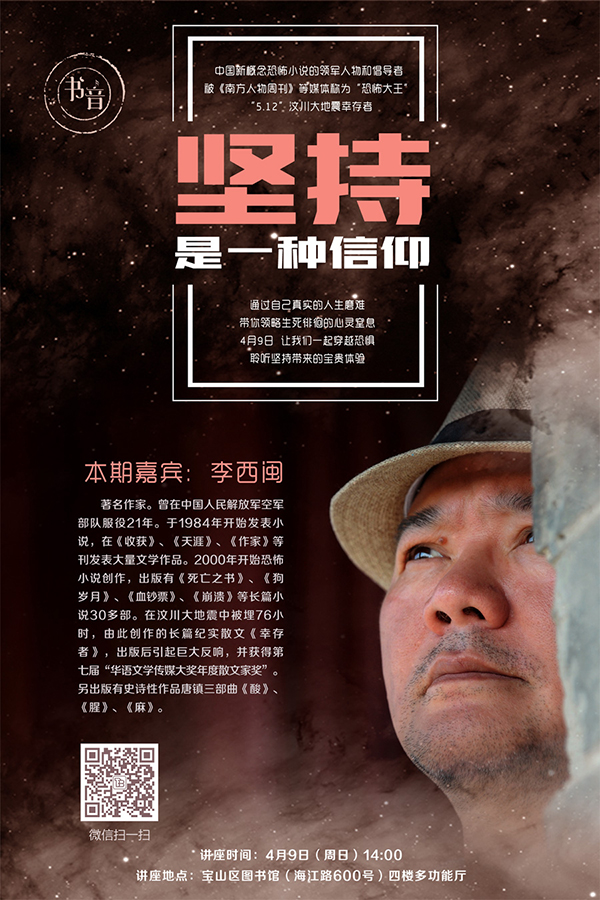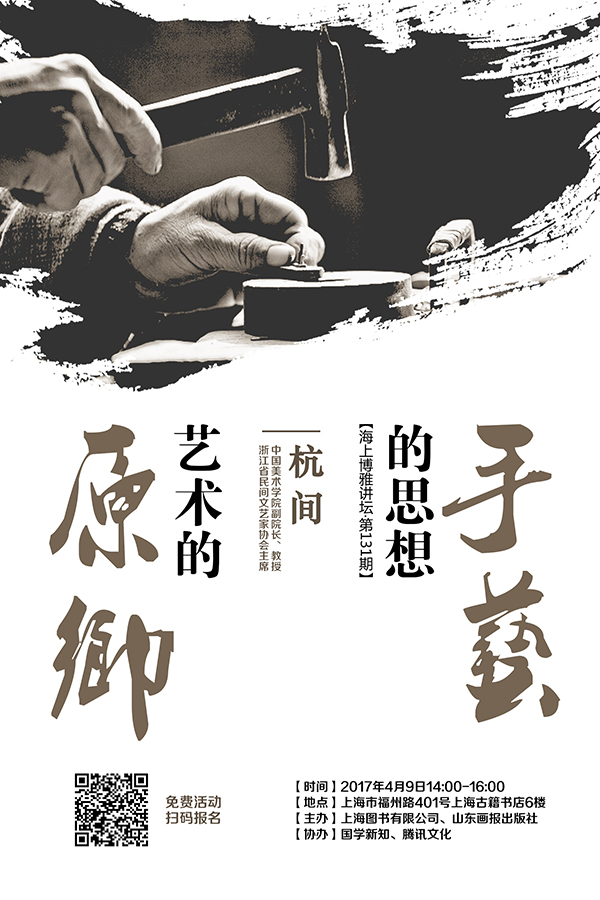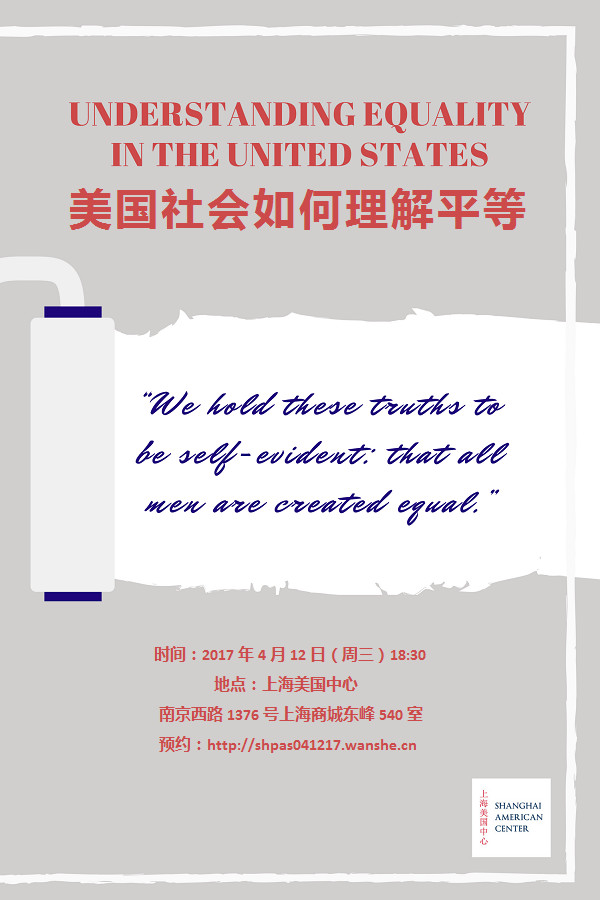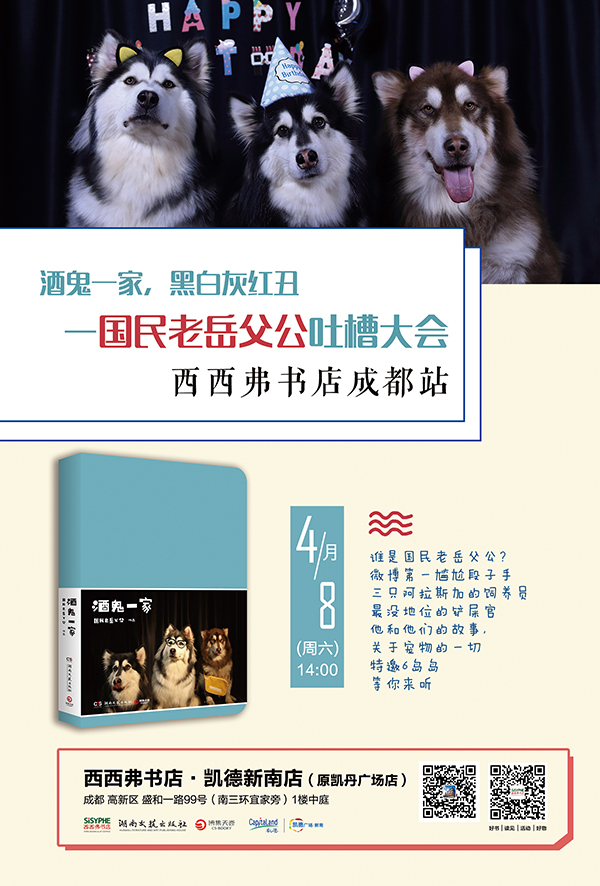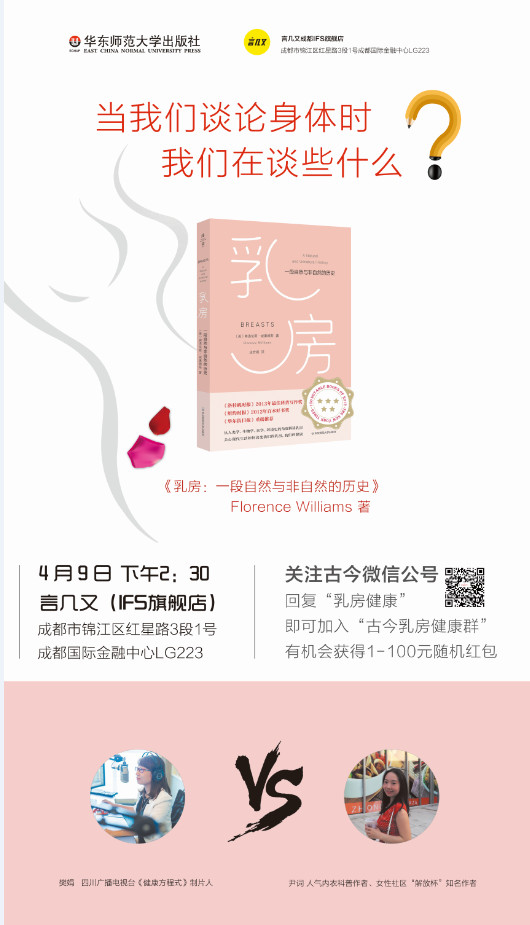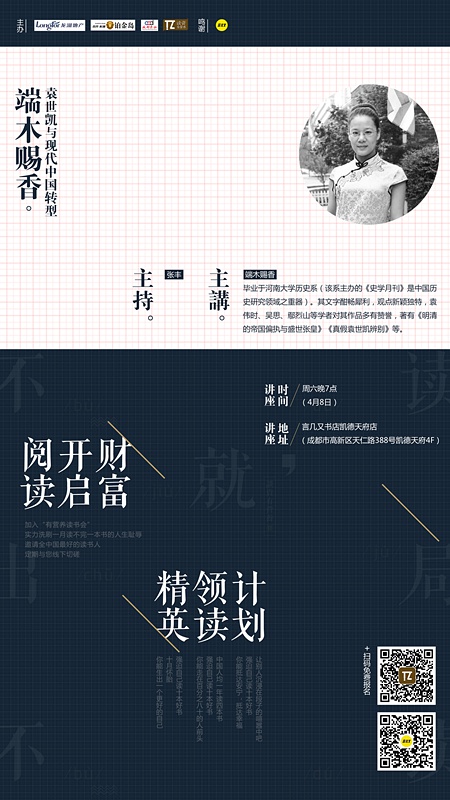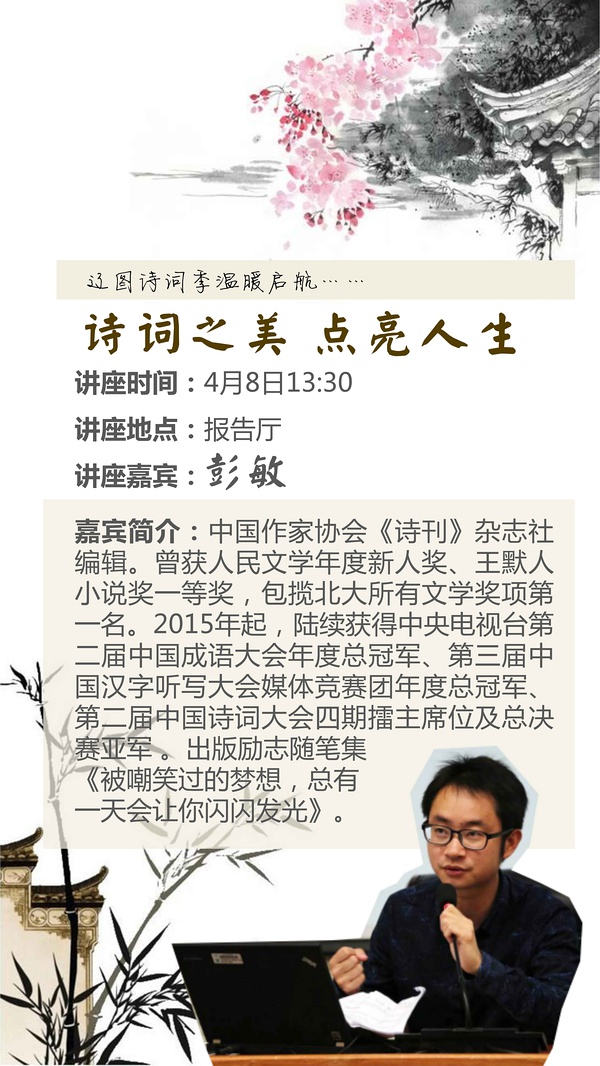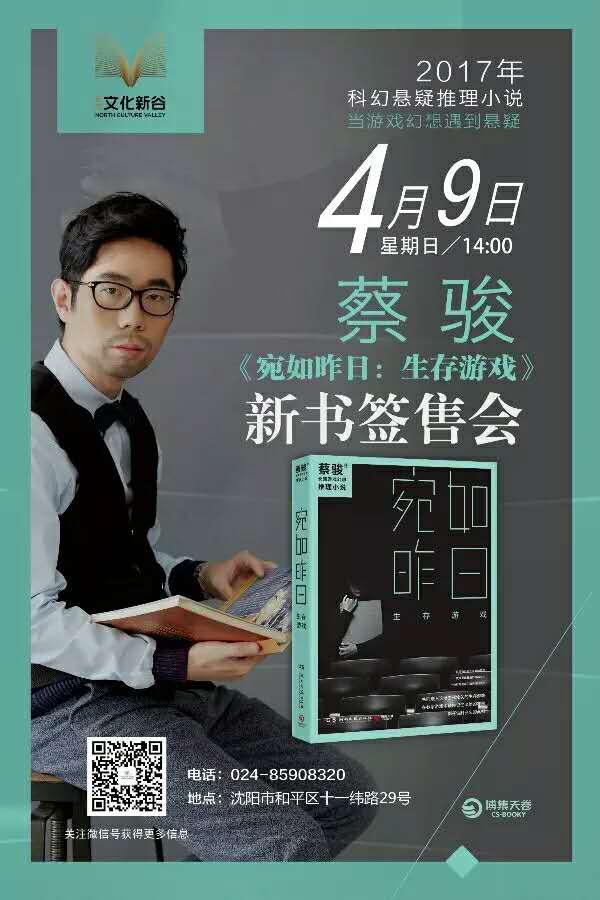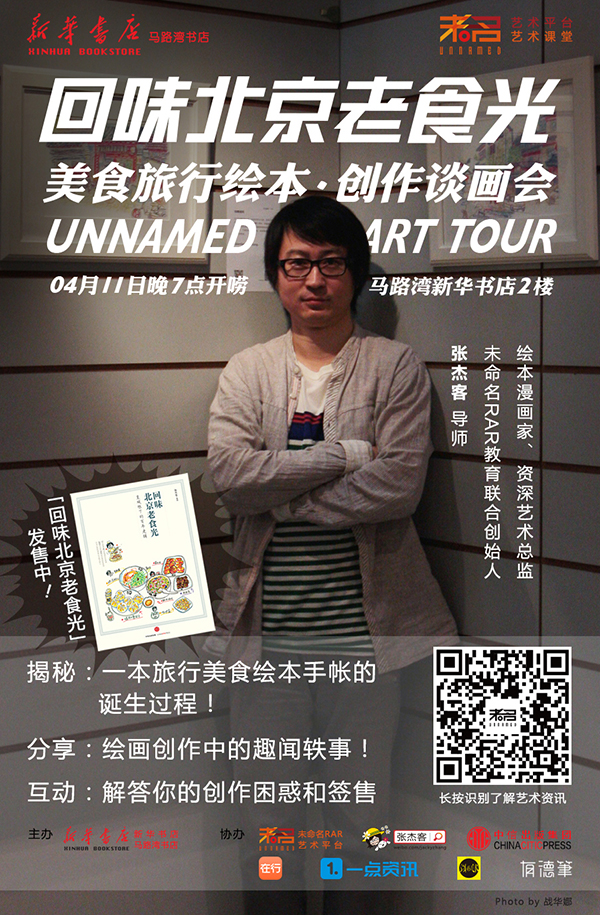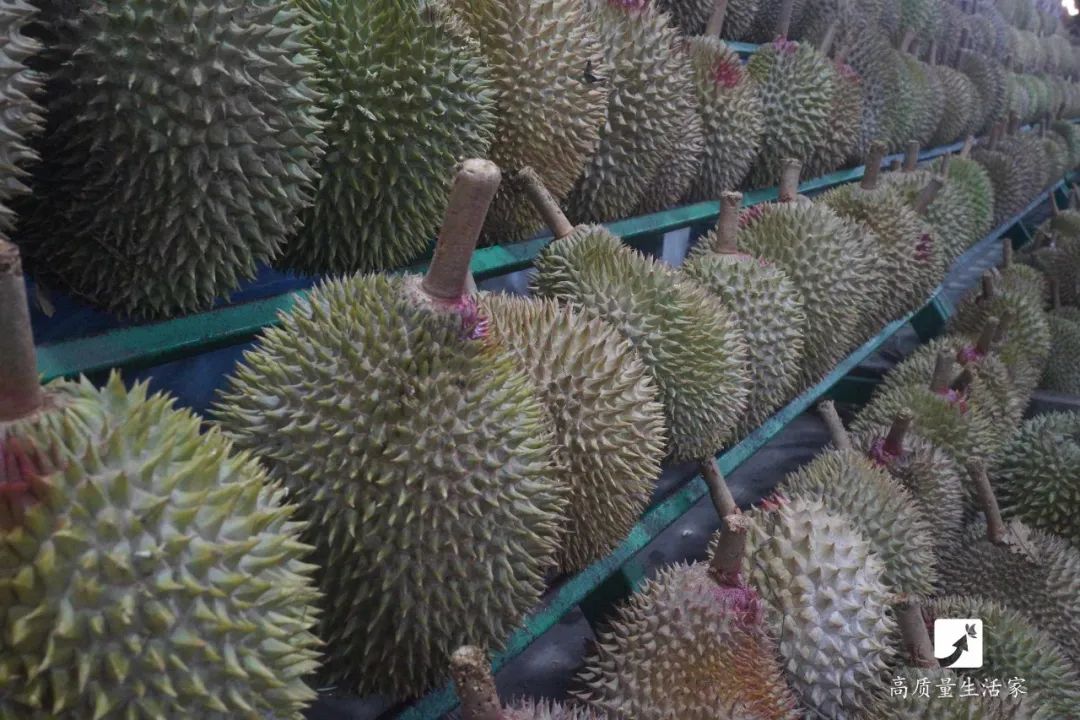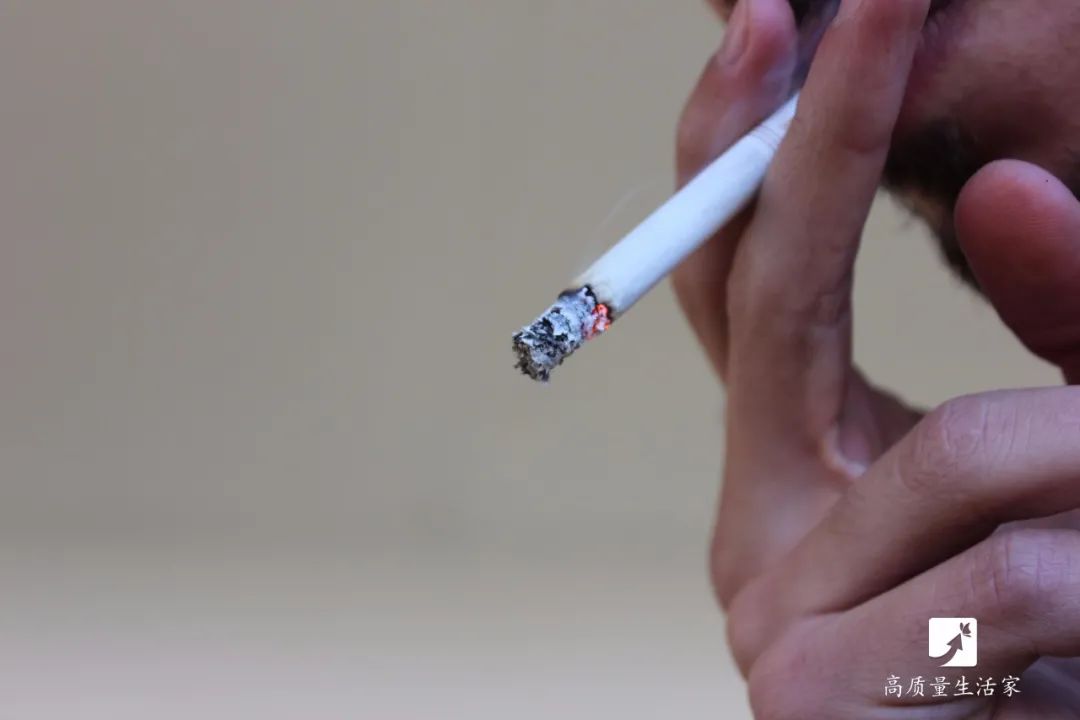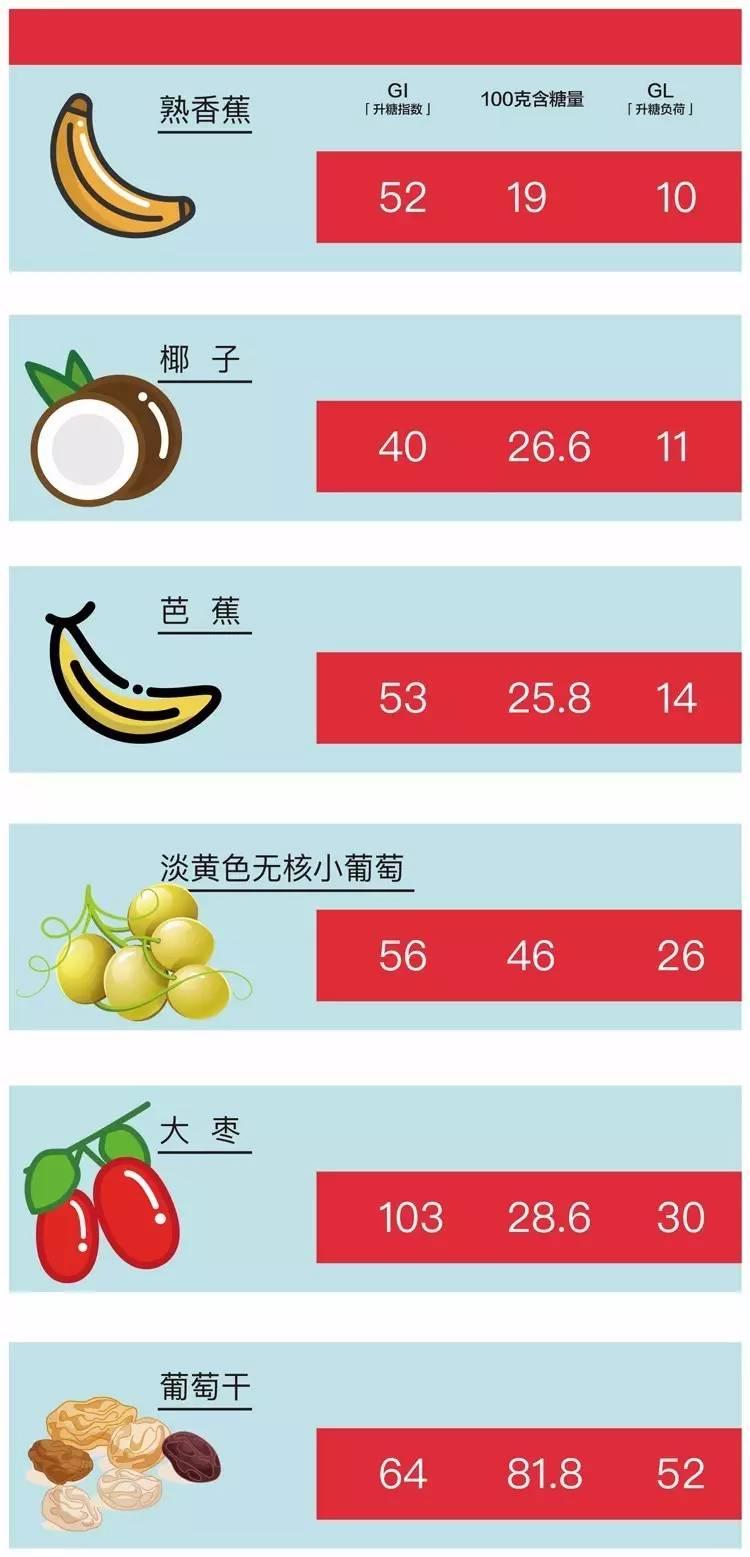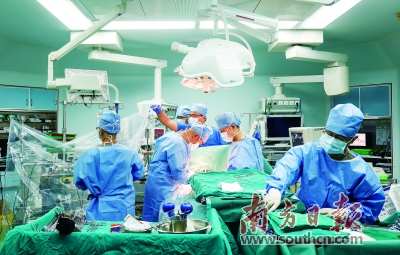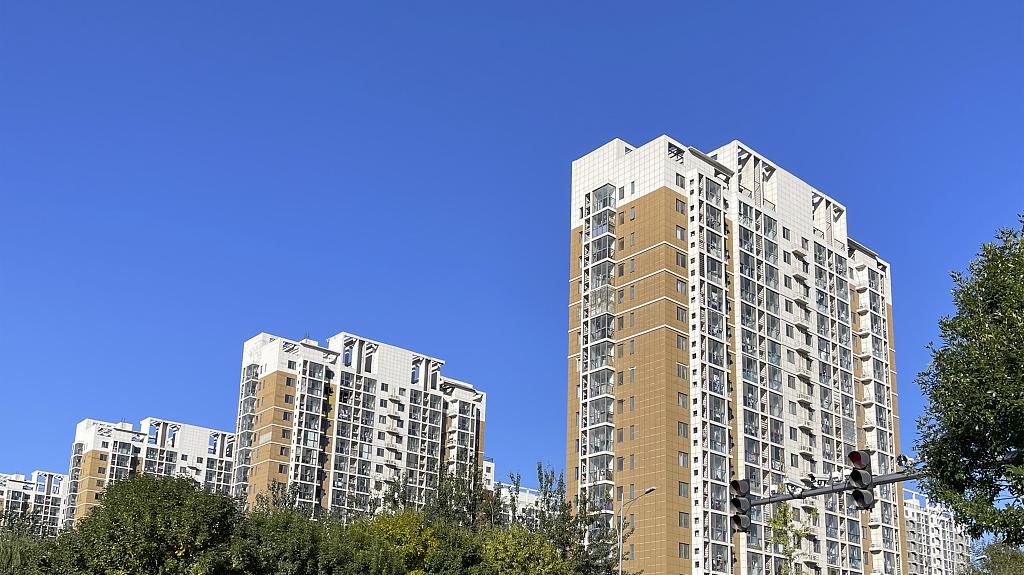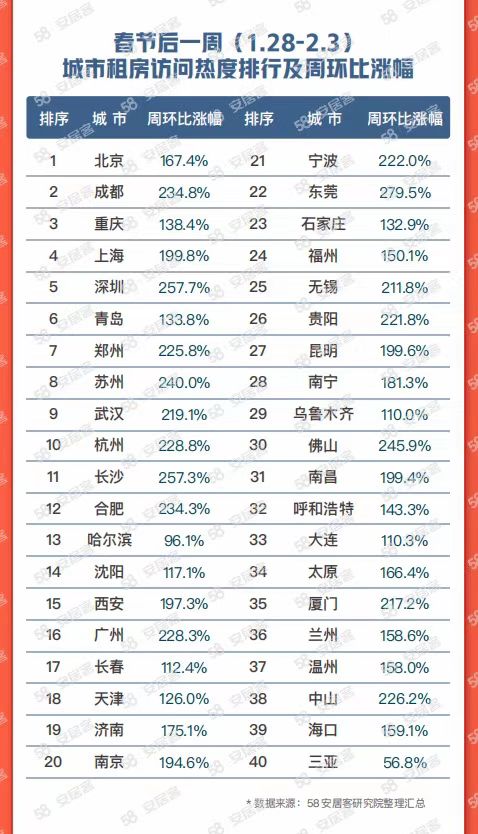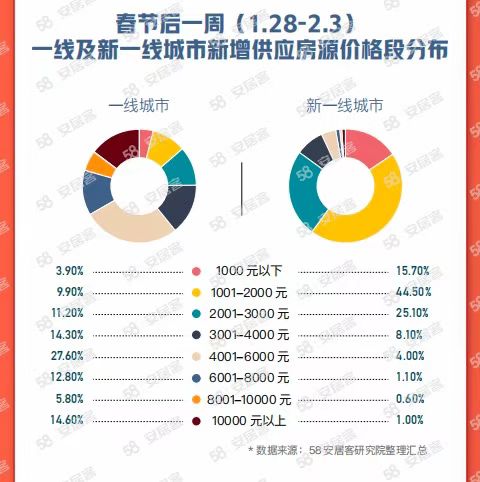Beijing │ "Belt and Road" on China’s "Inner Asia" Road to "Outer Asia"
Time:April 7 (Friday) 19:00-21:00
Location:Room 201, Floor 2, Beizhi Building, Minzu University of China, No.27 Zhongguancun South Street, Haidian District
Speaker:Bao Lige (Professor, Department of Archaeology and Anthropology, Cambridge University, UK)
The World Ethnology and Anthropology Research Center of Minzu University of China invited Professor Bao Lige to give lectures to famous overseas scholars (5 lectures in total), and this was the last lecture. Professor Uradyn E.Bulag is currently a professor in the Department of Archaeology and Anthropology, Cambridge University, UK, mainly engaged in the study of East Asia and Inner Asia. His trilogy of Mongolian studies: Nationalism and Hybridity in Mongolia. Oxford: Clarendon Press. 1998, The Mongols at China’s edge: history and the politics of national unity. Lanham: rowman & Littlefield.2002) and Cooperative Nationalism: The Politics of Friendship on China’s Mongolian Frontier. Lanham: Rowman and Little Field. 2010) have exerted far-reaching influence in international academic circles.
Beijing │ The Beauty of Tang Poetry and Song Poetry
Time:April 8 (Saturday) 9:30-11:30
Location:Floor 2, Linqiong Building, National Library Ancient Books Museum, No.7 Wenjin Street, Xicheng District
Speaker:Leng Chengjin (Professor and Doctoral Supervisor, School of Literature, China Renmin University)
Leng Chengjin, Professor and Doctoral Supervisor of China Renmin University, Director of Classical Literature Teaching and Research Section, and Vice President of China Sushi Research Society; The main research directions are Tang and Song literature, ancient literary theory and traditional culture. There are more than ten kinds of books and teaching materials, such as Su Shi’s Philosophy and Literary Outlook, History and Aesthetics of China Literature, Study of Tang Poetry and Song Poetry, The Spirit of the Analects of Confucius, The Tension between Literature and Culture, Hermit and Liberation, etc. He has edited the academic magazine Research on Su Shi in China and published nearly 100 academic papers. In this lecture, Professor Leng will combine his professional knowledge to explain the beauty of Tang poetry and Song poetry to readers.
Beijing │ │ │ │ │ │ │ │ │ │ │ │ │ │ │ │ │ │ │ │ │ │ │ │ │
Time:April 8 (Saturday) 9:30-11:30
Location:Multifunctional Hall, Floor 1, Block A, Capital Library, No.88 East Third Ring South Road, Chaoyang District
Speaker:Wu Zhiyou (Curator of Confucius Temple and Guozijian Museum)
The speaker of this lecture will talk about the history and architecture of Confucius Temple and imperial academy, and introduce Confucius, the founder of Confucianism, and his ethical and moral ideology with "benevolence" as the core. Confucianism played a great role in politics, economy, culture, morality and many other aspects of ancient China society, which shaped Chinese’s national spirit, national character and national temperament. So in today’s new era, what kind of time value does Confucianism, as a cultural heritage and a great national spirit, reflect?
Beijing │ Spring, Poetry is Growing: The New Book Conference of Babel Poetry
Time:April 8 (Saturday) 13:00-15:00
Location:Haidian District Garden Road No.2 Mudan Science and Technology Building Block A Bi ‘an Bookstore
Guest:Wang Jianzhao (translator, professor of Beijing Foreign Studies University) and Fan Ye (translator, associate professor of Spanish-Portuguese Department in Peking University).
Zvetayeva, an outstanding Russian poetess in the 20th century, entrusted her whole life to poetry. The collection of poems "She has been waiting for the knife for too long" is a faithful record of her desperate attitude. To the Poet of the Future is an anthology of poems by Sernoux Da, which was translated and published for the first time in the Chinese world. For Sernoux, surrealism is not only a style, but also a school of poetry: it is an attempt to integrate poetry into life and a subversion of language and system. In this reading session, we invited Wang Jianzhao, the translator of "She has been waiting for the knife for too long", and Fan Ye, the translator of "To the Poet of the Future", and asked them to tell us about those exuberant and sensitive vitality, the love and poetry that gushed out.
Beijing │ Moss will not disappear: rebuild life patiently.
Time:April 8 (Saturday) 14:00-16:00
Location:One-way space 5F-42, Chaoyang Joy City, No.101 Chaoyang North Road, Chaoyang District
Guest:Yuan Ling (media person), Li Jingze (writer and critic) and Danbao (media person).
The old man who lost his eyes in the mine accident turned his whole face blue, and the coal ash in the explosion penetrated into his face, and the "mask" could no longer be taken off. A 17-year-old peasant woman whose legs were cut off by a mine has worn through more than a dozen Shuang Mu benches for 30 years, given birth to two children, built a house, knelt on an iron bench, and harvested ears of rice taller than her. Young people who have suffered from trauma and dryness spend twenty years sewing insoles and cross-stitch with their surviving upper limbs, weaving the time of paralysis and shock to support themselves and their families. This is not a novel, but a true story in Moss Never Disappears. At the end of this spring, Yuan Ling talked with Li Jingze and Danbao about "Moss Never Disappears" and the story of rebuilding life.
Beijing │ How to tell the story of China with oriental Zen?
Time:April 8 (Saturday) 14:00-16:00
Location:Beijing Youth Daily Building, Building A, No.23, Baijiazhuang Dongli, Chaoyang District
Speaker:Tian Qinxin (Director)
She is praised by the industry as a banner that insists on artistic quality and cultural character, and is also one of the most successful drama directors with the highest artistic achievements in adapting famous works. She is Tian Qinxin, a famous drama director. She is famous for her interpretation of classics, and her adaptation works involve the works of modern and contemporary famous artists such as Xiao Hong, Zhang Ailing, Lao She, Li Bihua and Li Ao. In the hands of Tian Qinxin, these works have been endowed with new vitality and a unique "Tian style". On April 8th, in spite of his busy schedule, Director Tian Qinxin took time out to be a guest at the "Favor" lecture of Beijing Youth Daily to talk with you about the adaptation and originality of the classics.
Beijing │ Beast to the left, Gentleman to the right: Meeting and signing ceremony of the new book "Beast Gentleman"
Time:April 8 (Saturday) 14:00-16:00
Location:1-13A Yanjiyou Bookstore, Tongying Center, South Sanlitun Road, Chaoyang District
Speaker:Wu Jiamin (columnist)
Maybe you are not born with humor, or even a little old-fashioned. Doing a job that I don’t love in a city far from my hometown, but I don’t want to go home without achievement. Facing my feelings, I’m not handsome, and I’m a little timid and inferior. But as long as you consciously look for the rules of the game of "chasing love", instead of staying where you are and expecting others to take the initiative to find you and fall in love with you, you can get everything that seems not to belong to you, and you will get closer and closer to the ultimate happiness of life. Wu Jiamin’s "The Beast Gentleman" Beijing new book meeting and signing conference will teach you to become a Beast Gentleman on the spot and make the girl you like like like you!
Beijing, Gender Trouble
Time:April 8 (Saturday) 14:00-16:00
Location:Yong Dao of Ullens Contemporary Art Center, 798 Art District, No.4 Jiuxianqiao Road, Chaoyang District
Guest:Zhang Hanlu (media editor, critic and curator), Shen Xin (artist), Sang Tian (media editor), Li Jiahuan (curator), Bao Dong (media writer, critic and curator), Tao Hui (artist), Shu Kewen (writer and media person) and Guan Xiao (artist).
We live in an ambiguous and troublesome era, and any black-and-white judgment will face the risk of generalizing. As a topic, contemporary gender identity, which is more and more complicated, is full of various internal contradictions: is gender political or politically correct? Is it a doctrine or a problem? For cultural producers, gender is the material for manufacturing consumer goods? Or is it an opportunity to stimulate action? In the first activity, we specially invited two groups of guests to discuss the common topic of "gender" from different angles at the same time and space. During the activity, the audience can freely go in and out between the two sites, and this parallel parallax is also the most intuitive embodiment of the inherent contradiction of the discussion topic.
Beijing │ "Nature Month" theme activity: We are going to nature!
Time:April 8 (Saturday) 14:00-16:00
Location:Zhongxin Bookstore, LG2-05, Qiaofufang Grassland Shopping Center, No.9 Dongdaqiao Road, Chaoyang District
Speaker:Wu Lan (Dr. Peking University)
In April, the eyes are full of new buds, and the sound of growth is everywhere. The English word "April" in April originally came from the ancient Roman word "Aperire", which means "open" and "blossom". In this warmer and warmer season, nature has played a magnificent movement-awakening, spawning, gestation, birth, raising and growth … In this April, we sincerely invite everyone who shuttles between reinforced concrete to slow down and rediscover the beauty of nature with us. In the next whole month, chinese national geography Book & CITIC Bookstore prepared six nature classes with different themes for everyone, and six nature observers led everyone to feel the beauty of nature together, including two parent-child games. Welcome to bring your baby to the wild! This Saturday, the second activity will begin. We invited Dr. Wu Lan from Peking University to accompany you to discover the wild animals around you.
Beijing │ People with Stories ── On the Experience of Novel Creation
Time:April 8 (Saturday) 14:00-16:00
Location:One-way space on the second floor of Building D, Graduate School of Chinese Academy of Social Sciences, No.1 Zhonghuan South Road, Wangjing, Chaoyang District
Guest:Luo Yijun (writer), jade y. chen (writer), Chen Xue (writer), Gan Yaoming (writer and journalist), Tong Weige (writer) and Gao Yifeng (writer).
"Literary particles collide with each other, and the story energy continues to burn." In this activity, Taiwan Province writers Luo Yijun, jade y. chen, Chen Xue, Gan Yaoming, Tong Weige and Gao Yifeng were invited to one-way space to hold a discussion and exchange with mainland readers, creating a spark of cross-strait literary circles.
Beijing │ "Designers and Printing Machines" National Tour Lecture & Workshop Beijing Station
Time:April 8 (Saturday) 14:30-16:00
Location:One-way space on the third floor of Aegean Shopping Center, No.12 Qisheng Middle Street, Chaoyang District
Guest:Lv Jingren (artistic director of Jingren Design Studio), He Hao (associate professor of visual communication design in School of Design, Central Academy of Fine Arts) and Shao Nian (founder of Orgasm Studio, climax work).
A famous designer said, "A successful design project depends on design, and the other half is printing." Today, we will put down the burden of "China invented printing" and talk about printing again. Yes, we choose colors every day, but some people become rare artists to print surprises. Small workshop, great joy. Although there are deviations in the printing of paper, the effect is another kind of beauty. No matter whether you are happy or worried, you can’t put it down! BranD invited 11 designers to talk about the creativity, inspiration, feelings and art of printing. We travel through Shanghai, Beijing, Shenzhen, Guangzhou and the whole world. This is a sincerity to designers and printing.
Beijing │ "Meeting unexpectedly, leaving without saying goodbye" new book sharing meeting
Time:April 8 (Saturday) 14:30-16:30
Location:Room B13-14, Kerry Center, No.1 Guanghua Road, Chaoyang District
Speaker:Yi Yi (author)
Be shy first. Because I am the author, the second book is published, but this is the first new book sharing meeting in my life. The organizer said that someone would definitely come to the scene, so there is no need to come to the "same city" for activities. I think, in case no one comes at that time, it will be awkward to have an ice-breaker. Anyway, I will post an activity on my own "same city", and no one may necessarily see it. I don’t know how to write the details of the event, and I haven’t decided on the theme of the sharing meeting. In a word, I am a person with stories and fun. Say whatever you ask at the event. Many people are suspicious of my situation and still don’t understand it. Anyway, I can see the live one this time, and my doubts will be broken. I’m Yi Yi. Welcome to this long-planned meeting.
Beijing │ │ Covered Folk History, Neglected Little People —— A New Book Sharing Meeting of Stars and Suqin
Time:April 8 (Saturday) 15:00-17:00
Location:Bi ‘an Bookstore, 1st Floor, Mudan Science and Technology Building, No.2 Huayuan Road
Guest:Zhang Lixian (publisher), zhangming (scholar of literature and history), Chen Tushou (scholar of literature and history), Shi Jiepeng (writer and scholar) and Yun Conglong (scholar).
To observe the changes of a society, we should not only pay attention to the psychological context of intellectuals and social elites at that time, but also absorb the psychological slices of the people and even the ordinary people. Most of the former have been preserved more or less through various channels, while the attitude of ordinary people towards the humanities of the world has almost been submerged as time goes by. Recently, Oriental Publishing House published Yun Conglong’s new work "Stars and Suqin". According to the author’s unexpected 35 personal letters, it restored the tortuous and touching emotional experience between two ordinary young people, namely the stars and Suqin, and showed the unique social ecology of that era, as well as the real picture of ordinary people’s work and life, ideals and beliefs, honor and disgrace and ups and downs, fear and helplessness. On Saturday, let’s walk into the world of stars and Suqin with several guests.
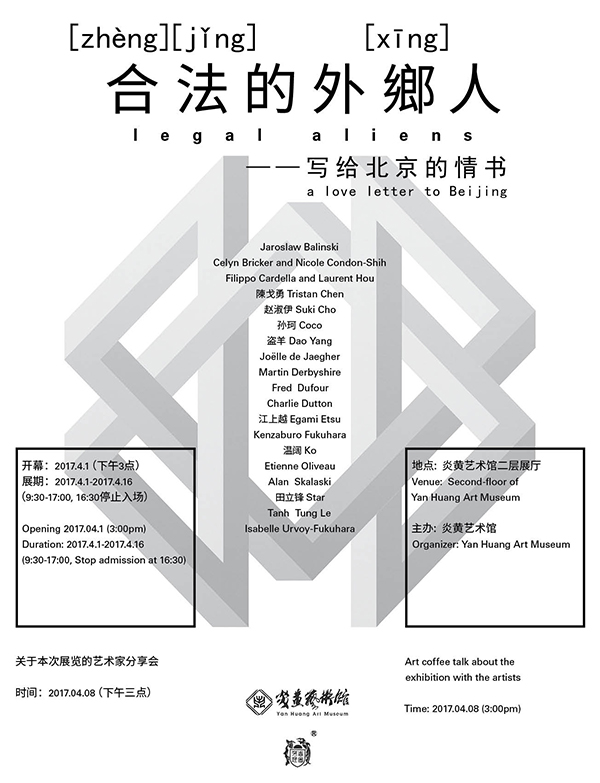
People from other places (X and N ɡ) in Beijing ││││││││││││││││││││││││││
Time:April 8 (Saturday) 15:00-17:00
Location:Yanhuang Art Museum, No.9 Huizhong Road, Asian Games Village, Chaoyang District
Guest:Jaroslaw Balinski (artist), Chen Yiyong (artist), Zhao Shuyi (artist), etc.
With China’s reform and opening up, Beijing has become a frequent stop for people from all over the world. Coming to Beijing, a city with various cultural customs and living habits, "inadaptability" has constituted the pressure and confusion in the lives of "strangers" for a period of time. In this process of adaptation and running-in, they gradually felt the unique charm of Beijing-her complexity, diversity, and occasional randomness and slovenly. At present, the Yanhuang Art Museum’s exhibition "People from other places (XΡ nɡ) with the method of combining (zhèng) with (jǐng)" shows that these "serious" people from other places have nothing to do with homesickness and are complex and passionate about Beijing. On the afternoon of April 8th, the participating artists will personally make coffee to entertain the audience who come to the sharing session, and share their life in Beijing through the interpretation of their works.

Beijing │ Design X Naive —— Conversation between Zhu Yingchun and Laoshu
Time:April 8 (Saturday) 19:00-21:00
Location:One-way space on the third floor of Aegean Shopping Center, No.12 Qisheng Middle Street, Chaoyang District
Guest:Zhu Yingchun (book designer, artist, book planner) and Laoshu (professor, School of Culture and Media, Central University of Finance and Economics).
The theme of "design, naivety" is actually difficult for you: is your naivety from nature, or thoughtful, or is it half nature and half design? Furthermore, what about the naivety in art? "Design, naivety" is also a vague expectation: Can the naivety in your works inspire artistic conception that design and art have not yet fully understood beyond the tide of Europe, America and Japan? Of course, the theme is just an introduction. Since both of them have a tree in their names, we can listen to the unrestrained conversation between the two trees.
Beijing │ Super Popular Science Course for Great Scientists
Time:April 8 (Saturday) 19:00-21:00
Location:Zhongxin Bookstore, LG2-05, Qiaofufang Grassland Shopping Center, No.9 Dongdaqiao Road, Chaoyang District
Speaker:Li Miao (physicist)
Li Miao, a famous physicist, wrote popular books on quantum mechanics for children, which skillfully turned the abstract and difficult quantum mechanics into everyday sensible things, and told stories of many lovely physicists, which suddenly narrowed the distance between physics and us, and let us follow him on this journey of quantum physics with great interest. The book is also equipped with interesting illustrations, so that young readers can understand the physical process more intuitively and better understand the world. On April 8th, Teacher Li Miao will share with you the journey of "Quantum Mechanics".
Beijing │ We are all on the road: Hu Defu Sisif Bookstore Music Chat.
Time:April 8 (Saturday) 19:30-21:00
Location:Xixifu Bookstore, East Gate L1, Building 1, Blue Harbor International Business District, No.6 Chaoyang Park Road, Chaoyang District
Speaker:Hu Defu (musician)
When Hu Defu, with silver hair, sat on the stage of The Reader, everyone else was silent when he opened his mouth. Being intoxicated in the mountains and rivers of his singing years, he can’t help being solemn in his piano sound full of Yuan Ye power and natural beauty. On April 8th, Hu Defu, the godfather of folk songs, visited Sisyphus Bookstore in Beijing with his new book, We Are All Travellers, and had a face-to-face exchange with you. This time, he will share more songs and stories behind them with everyone. He may not be the most dazzling one on the stage, but when he puts years and mountains and rivers into a man’s chest, his voice and his story may accompany us further.
Beijing Poet’s Translation of Poetry: A Modern Tradition of China’s New Poetry
Time:April 9 (Sunday) 9:30-11:30
Location:Floor 2, Linqiong Building, National Library Ancient Books Museum, No.7 Wenjin Street, Xicheng District
Speaker:Wang Jiaxin (China contemporary poet, critic and translator)
Wang Jiaxin, a contemporary poet, critic and translator in China, is a professor and doctoral supervisor at the College of Literature of China Renmin University. He is the author of a collection of poems, such as Commemoration, Swimming Cliff, Wang Jiaxin’s Poems, Unfinished Poems, Tarkovsky’s Tree, and a collection of essays on poetry, such as The Meeting of Man and the World, The Nightingale in its own Time, Poems Without Heroes, Finding a Place for Phoenix, and Hospitality of Snow. Edited and selected are Poems by Foreign Poets in the 20th Century, Selected Poems of Contemporary Europe and America, and Poems of China: A Memorandum in the 1990s. In this lecture, Professor Wang will deeply interpret "Poet’s Translation of Poetry: A Modern Tradition of China’s New Poetry".
Beijing │ Liao Fei: "M" is the "murderer"
Time:April 9 (Sunday) 14:00-15:30
Location:Yong Dao of Ullens Contemporary Art Center, 798 Art District, No.4 Jiuxianqiao Road, Chaoyang District
Guest:Liao Fei (artist), Wang Wenfei (curator) and Han Xinyi (co-founder of Salt Projects)
In 1999, the body of a climber M in the early 20th century was found by an American mountaineering team. The captain of the American mountaineering team, detectives, mathematicians, game developers, professional Go players and monks studied the remains of this mysterious corpse from different angles, but only got some vague speculations … This story originated from the novel M written by artist Liao Fei in 2011, in which many elements and clues run through the artist’s creative process and problem consciousness. On the afternoon of April 9th, UCCA invited artist Liao Fei, co-curator Wang Wenfei of Exceptional State and Han Xinyi, co-founder of Salt Projects, to jointly uncover the mystery of Liao Fei’s creation and the exceptional state reflected by M through the clues and ideas reflected in UCCA aisle space.
Beijing │ │ │ │ │ │ │ │ │ │ │ │ │ │ │ │ │ │ │ │ │ │ │ │ │
Time:April 9 (Sunday) 14:00-16:00
Location:1-13A Yanjiyou Bookstore, Tongying Center, South Sanlitun Road, Chaoyang District
Guest:Wang Jie (popular science writer) and Wu Jingping (popular science writer)
For a long time, you must have such a question: Is the eternal flowing time really intangible, or does it have a shape and an end? Is our space three-dimensional, four-dimensional or five-dimensional? Can we set foot on a time machine and travel back to the past and the future at will? These, will find the answer in this book. Come to the scene together! Follow the author, you can enter Einstein’s dream, sit in Newton’s class, come to the scene of starlight experiment … get close to the truth of science. You will easily understand a theory that you think is too profound to understand, and you will enter a world that you think is too wonderful to understand forever.
Beijing │ The Return of Nationalism and the Future of Democracy —— From Voting to Violence New Book Salon
Time:April 9 (Sunday) 19:00-21:00
Location:Bi ‘an Bookstore, Floor 1, Mudan Science and Technology Building, No.2 Huayuan Road, Haidian District
Guest:Ren Jiantao (Professor, Doctoral Supervisor, Department of Political Science, Tsinghua University) and Wu Qiang (Doctor of Political Science, Duisburg-Essen University, Germany).
Under the new background of globalization, we seem to have ushered in a new wave of nationalism, which is intertwined with terrorism, economic crisis and refugee crisis, bringing more complicated difficulties. Not only developing countries, but also developed countries are facing serious social divisions, which directly promotes the rise of nationalist and conservative political parties in various countries. In this salon, two guests will talk about "From Voting to Violence", review the course of the global conflict between democratization and nationalism since 1990s, and look forward to the future development trend of democracy.
Beijing meets 84 charing cross road.
Time:April 9 (Sunday) 19:00-21:00
Location:MENDO Cafe, Floor 2, Beiwai International Building, No.19 West Third Ring North Road, Haidian District
Guest:Yang Xiaozhou (writer, publishing planner, photographer) and Ye Xin (professor of Beijing Institute of Printing)
Helene hanff died on April 9th, 1997. In a blink of an eye, she has been away from us for twenty years. Over the years, readers have often shared each other’s feelings. While deciphering the story behind 84 charing cross road, Teacher Ye Xin wrote: "When it comes to the spread of 84 charing cross road in the Chinese world, the four most important promoters in the early days were Yang Jingyuan, Zhong Fangling, Katie and Chen Jianming." He recounted the contributions of this loose "communication community". On April 9th, two teachers, Yang Xiaozhou and Ye Xin, joined hands to share their stories with 84 charing cross road in FLTRP Bookstore, and talked about their feelings of visiting Charing Cross Street and London.
Shanghai │ How to do a good job of family intervention in autism?
Time:April 8th (Saturday) 9:00-16:30.
Location:Multifunctional Hall, Building 4, Gongyi Xintiandi, No.105 Puyu West Road, Huangpu District
Speaker:Li Laoxi (Autism Special Education Teacher)
Warm Star Community, as a professional service platform for autism, held a lecture in Shanghai on April 8th, with the theme of "How to do a good job in family intervention for autism". Teacher Li Laoxi is one of the most concerned public figures in the field of special education in Zhihu. She has always been committed to the public science popularization of autism. She once worked as a teacher in Zhejiang Sheng ‘ai Autistic Children Rehabilitation Center, and published the Zhihu salt series e-book "Notes of Special Education Teachers", focusing on the problem of children with developmental retardation aged 2-6. This lecture is purely practical video teaching and explanation, with live interactive Q&A, giving you a practical lecture that is "learning and using" in a real sense!
Shanghai │ the youth of reasoning fans-the initial style of "new prototype"
Time:April 8 (Saturday) 14:00-16:00
Location:JIC Bookstore, Floor 1, Jiayu Building, Building 8, No.18 Gongping Road, Hongkou District
Guest:Lu Qiucha (writer), Lu Yehua (writer) and Shi Chen (writer)
In 1987, The Ten Corners Pavilion Incident was born, and the tide of neo-archetypal movement swept the Japanese reasoning literary world. Now, 30 years later, at the time of the "alternation of generations" of the new prototype reasoning, the reasoning market in China is becoming increasingly prosperous, and a large number of excellent reasoning writers are growing at an alarming rate, among which Lu Qiucha is one. He attracted a large number of young readers with his unique style of writing and solid brushwork. His new work "If and Only if the snow is white" draws a background for the tragedy of death with the youth you and I share. The test of future confusion and cruel friendship is approaching them step by step. In the end, no one can escape the transformation of growing up. Those who love this style take pleasure in solving puzzles. We will invite you to look back at the starting point of the new prototype creation and discuss its influence on today’s reasoning writers. In this scene, we invited domestic reasoning writers Shichen, Lu Yehua and Lu Qiucha to talk about "the youth of reasoning writers".
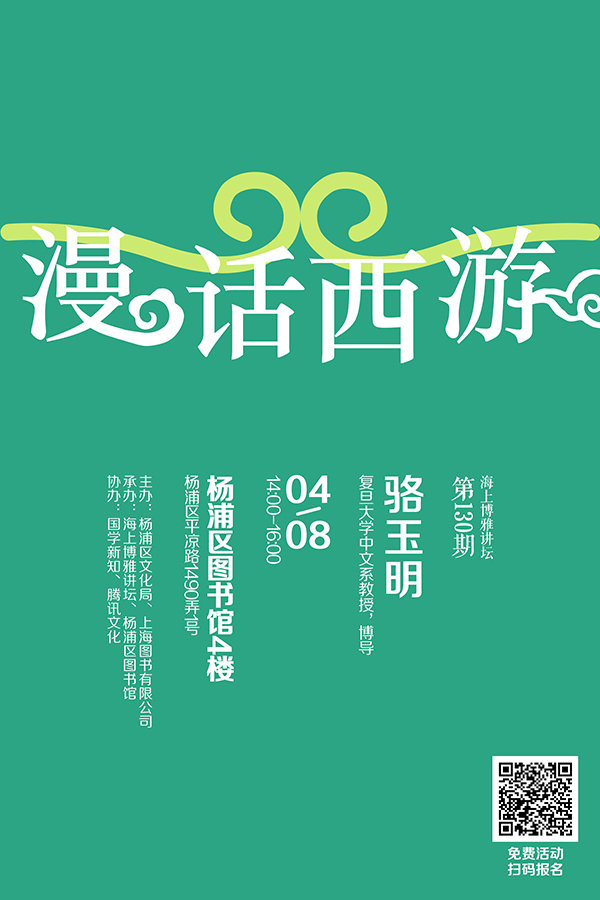
Shanghai │ rambling about the West.
Time:April 8 (Saturday) 14:00-16:00
Location:Floor 4, Yangpu District Library, No.1 Lane 1490, Pingliang Road, Yangpu District
Speaker:Luo Yuming (Professor, Chinese Department, Fudan University)
Luo Yuming, born in 1951, is a professor and doctoral supervisor of Chinese Department of Fudan University. Graduated from graduate school in 1977, stayed in school and worked as a teacher in the teaching and research section of classical literature. His main research direction was literature of Han, Wei and Six Dynasties. His main works include Xu Wenchang’s Biography (in cooperation with He Shengsui), Literature of the Southern and Northern Dynasties (in cooperation with Zhang Zongyuan), Elegy of Poems by Scholars in the South of the Yangtze River in the Middle Ming Dynasty, Notes on Philosophy of Laozi and Zhuangzi, Comments on Cultural Hotspots in Recent Twenty Years, A Brief History of China Literature, and Intensive Reading of Shi Shuo Xin Yu, etc. Co-edited with Professor Zhang Peiheng the three-volume History of China Literature. In this lecture, Professor Luo will ramble with you on a journey to the West from many angles.
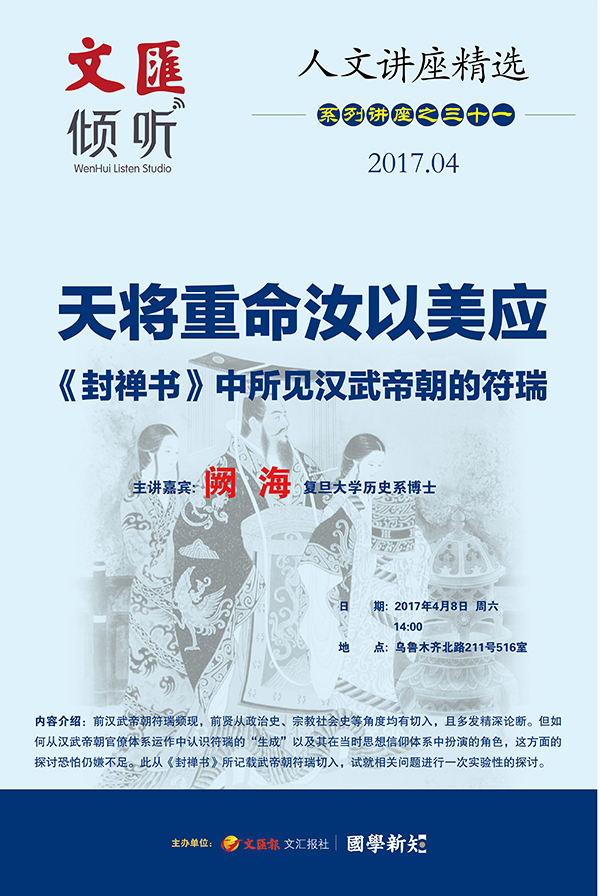
Shanghai │ Heaven will command you to respond with beauty: Fu Rui in the Han Dynasty as seen in the Book of Feng Chan
Time:April 8 (Saturday) 14:00-16:00
Location:Room 516, No.211 Urumqi North Road, Jing ‘an District
Speaker: Quehai(Ph.D., Department of History, Fudan University)
Fu Rui appeared frequently in the reign of Emperor Wu of the Han Dynasty, and the former sages cut in from the angles of political history, religious social history and so on, and made many profound judgments. However, how to understand Fu Rui’s "generation" and his role in the ideological and belief system at that time from the operation of the bureaucratic system of the Emperor Wu of the Han Dynasty is probably still insufficient. This lecture will start with Fu Rui, the Emperor Wudi recorded in the Book of Fengchan, and try to make an experimental discussion on related issues.
Shanghai │ Three Floating Cities, Linked by Love: Cross-border Female Writing
Time:April 8 (Saturday) at 14:00
Location:Sinan Literature House, No.505 Fuxing Middle Road, Huangpu District
Guest:Zhang Yuan (novelist), Qian Dingping (writer, translator, cross-civilization researcher), Lu Lian (vice president of School of Foreign Languages and Literature, Fudan University, professor of English Department, doctoral supervisor)
They are people who write stories, and they construct the city memory and love-hate chapters in their works; They are women in literature, and their unique life experiences are portrayed by words. Inside and outside the story, they are all creatures living in a floating city, bright and happy in the clouds of love, and eroding their bones and hearts in the fog of desire. On the afternoon of April 8, Zhang Yuan × Qian Dingping × Lu Li ‘an, a cross-cultural guest group of novelists, scientists and scholars, will collide with a spark of thinking in a corner of the floating city, and enjoy the passing of the world of mortals with you at Sinan Reading Club.
Shanghai │ │ │ │ │ │ │ │ │ │ │ │ │ │ │ │ │ │ │ │ │ │ │ │ │
Time:April 8 (Saturday) 14:30-16:30
Location:B1, Hubin Road Shopping Center, No.150 Hubin Road, Huangpu District. Read Today.
Speaker:Zhou Yu (founder of Da ‘an Culture)
This is a simple little love poem is a collection of poems by Zhou Yu, a famous cross-border writer, which contains 139 poems created by the author so far. As always, the style is spicy and the language is direct. Poetry is limited in space, and Zhou Yu uses a few words to express his intuitive attitude towards love. At the end of this spring, Zhou Yu will bring his new book and interact with readers all over the country.
Shanghai │ and Daughter’s Daily Life: Meeting with Shanghai Readers of Chen Yuanfeng’s Daily Life with Daughter
Time:April 8 (Saturday) at 14:30
Location:Yan Jiyou, Block B, Changtai Plaza, No.2 Lane 2889, Jinke Road, Pudong New Area Reading Today
Speaker:Chen Yuanfeng (cartoonist, animation director)
Everyday with My Daughter is a collection of warm comic stories created by Chen Yuanfeng, the main author of the famous cartoon image Zhang Xiaohe. It tells many humorous or warm life stories between Chen Yuanfeng and his daughter with pictures and photos. This Saturday, he came to Shanghai with a new book to share his and his daughter’s daily life with readers.
Shanghai │ Going to the Countryside: Artists Sharing Meeting
Time:April 8 (Saturday) 15:00-16:30, April 9 (Sunday) 15:00-16:30.
Location:A2-103, Hongfang Cultural and Art Community, No.570 Huaihai West Road, Changning District
Guest:Zhou Yang (photographer, translator), Ling Yiliang (designer), Cao Mengqin (photographer)
Since 2011, Shanghai Ruan Yisan Urban Heritage Protection Foundation and REMPART, a French volunteer alliance for heritage protection, have started to hold a heritage protection camp in China. The latter was established in 1966 and has long been committed to promoting the awareness of heritage protection in France and around the world. Every summer, China and French volunteers come to rural China to spend a two-week "working holiday"-restoring historic buildings. Since 2015, the volunteer work camp for architectural heritage protection has welcomed resident young artists, hoping to express young people’s thoughts on traditional architectural culture and traditional life through 14 days of participation, experience and observation. During the two-week exhibition, five artists will also share their experiences and inspirations in work camp and peacetime creation with the audience face to face.
Shanghai │ From "Desiring to Become a Dragon" to "Desiring to Become an Adult" —— How to be a parent today? How to be a child?
Time:April 9 (Sunday) at 13:30
Location:Shanghai library west gate lecture hall on the second floor
Guest:Yang Xiong (Director of Institute of Teenagers of Shanghai Academy of Social Sciences), Wu Zunmin (Director, Professor and Doctoral Supervisor of Lifelong Education Research Center of East China Normal University) and Qin Chang (Moderator).
What changes does the family need from "aspiring to be a dragon" to "aspiring to be an adult"? The importance of children’s role in family education? How to understand "sub-vocational education" causes parents to think about the problem. How to innovate the form, content, methods and means of educating children in the internet age with developed media? In the face of pressures such as junior high school entrance examination and middle school entrance examination, how should we help children solve them? How to balance the contradiction of educational ideas within the family? How do parents’ behavior and family environment affect children’s growth? This lecture will give the audience more brand-new ideas and methods of family education.
Shanghai │ Persistence is a belief.
Time:April 9 (Sunday) 14:00-15:30
Location:Multi-function hall on the fourth floor of Baoshan District Library, No.600 Haijiang Road, Baoshan District
Speaker:Li Ximin (writer)
In the "5.12" Wenchuan earthquake, the writer Li Ximin was buried under the ruins for 76 hours. He said he was lucky, he could survive, and he could use writing to soothe his wounded heart. However, those who lost their health, their homes and their loved ones endured even greater pain, and needed our care more … So he wrote Survivor, in order to take you through his own real life hardships for this unforgettable memory. On April 9, let’s go through the fear and listen to the valuable experience brought by persistence.
Shanghai │ The Story Behind The Picture of Allied Generals in China-Burma-India Theater
Time: April 9 (Sunday) 14:00-16:00
Location:In the Shanghai Library on the first floor, No.1555 Huaihai Middle Road, Xuhui District.
Guest:Yan Huan (scholar), Hu Bo (scholar) and Gao Xiaolong (director)
The China-Burma-India war zone is an important part of the world anti-fascist war. After the outbreak of the Pacific War, the Japanese invaded Myanmar. In order to defend the Burma Road, China sent an expeditionary force to fight in Myanmar at the request of the British army. On June 22, 1942, the China-Burma-India War Zone (CBI) was established. By April 1945, the allied forces of China, the United States and Britain had wiped out the Japanese army in the battlefields of western Yunnan and Myanmar. The allied forces in the China-Burma-India war zone and the people of the three countries have left a glorious stroke in the world anti-fascist history with their blood and loyalty. On April 9th, Yan Huan, Hu Bo and Gao Xiaolong will gather in the bookstore above to tell readers about the little-known and lamentable stories behind The Picture of Allied Generals in China, Myanmar and India.
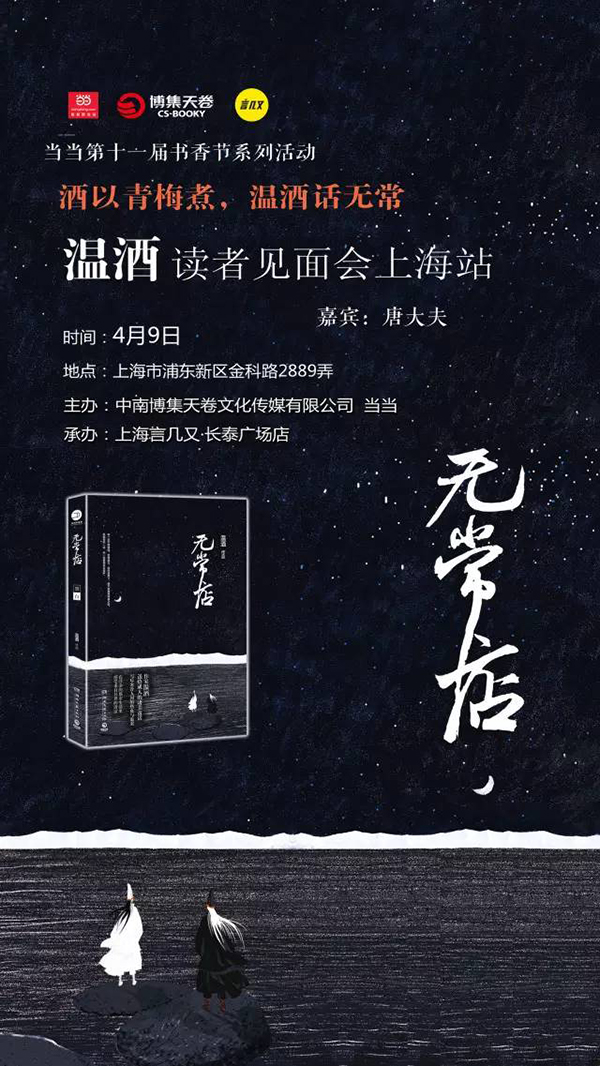
Shanghai │ Wine is cooked with green plums, and words of warm wine are impermanent: readers of warm wine meet with Shanghai Station.
Time:April 9 (Sunday) at 14:00
Location:Yan Jiyou, Block B, Changtai Plaza, No.2 Lane 2889, Jinke Road, Pudong New Area Reading Today
Guest:Wen Jiu (writer and screenwriter), Dr. Tang (author)
Impermanence Shop is the first work of Wen Jiu, a popular writer, which writes about the blood and gentleness of the cold world and is a beautiful fairy tale for adults. This is the best bedtime story. Although it is nothing, it tells the true human nature. This Sunday, Wen Jiu and Dr. Tang, a guest, talked with readers about this new book.
Shanghai │ the idea of craftsmanship, the hometown of art
Time:April 9 (Sunday) 14:00-16:00
Location:Multifunctional Hall, 6th Floor, Shanghai Ancient Books Bookstore, No.401 Fuzhou Road, Huangpu District
Speaker:Hang Jian (Vice President of China Academy of Fine Arts)
After the first edition of "The Thought of Craftsmanship" was published in 2001, it ranked among the top in the academic bestseller list of Beijing Sanlian Taofen Bookstore for three consecutive weeks. The articles in the book have been published in major newspapers and professional journals since the 1980s, and some of them have caused discussion when they were published. In the editing process, the author sorted them into categories and formed the author’s "craft thoughts". The source of the original publication is indicated at the back of each article, so that readers can think about the relationship between craft thought and the changes of the times in combination with the publication year. In this revised edition, several articles that are not mature now have been deleted, and some new works by the author in recent years have been added, so as to show the author’s thinking thread more completely. On April 9th, Hang Jian will bring his reprinted new book to talk with you about the culture and ideology of craftsmanship, which is also the "hometown" of craftsmanship.
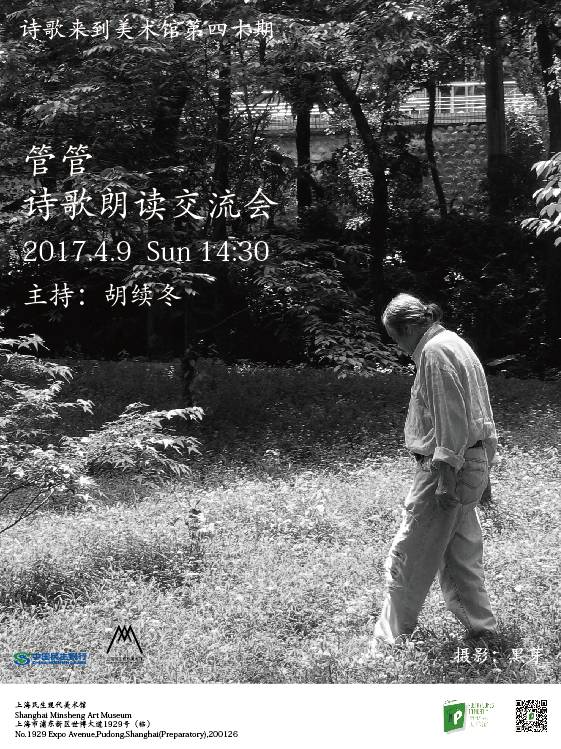
Shanghai Management Poetry Reading Exchange Conference
Time:April 9 (Sunday) 14:30-16:30
Location:Shanghai 21st Century Minsheng Art Museum, No.1929 Expo Avenue, Pudong New Area
Speaker:Manage (a poet)
Guan Guan, named Yun-loong Kuan, was born in Longfeng Village, Jiaonan County, Qingdao City, Shandong Province in 1929, and now lives in Taipei. The International Writers Work Plan of the University of Iowa invited writers (1982) to write poems, draw pictures, and act in movies, TV plays and stage plays. On April 9th, the series "Poetry Comes to the Art Museum" invited Guan Guan to share his poems with you.
Shanghai │ How does American society understand equality?
Time:April 12th (Wednesday) 18:30-20:00.
Location:Shanghai American Center, Room 540, Dongfeng, shanghai centre, No.1376 Nanjing West Road, Jing ‘an District.
When the United States declared its independence from Britain, it wrote in its Declaration of Independence: "We hold the following truth to be self-evident: all men are created equal." Since the Declaration of Independence was adopted in 1776, the understanding of equality in the United States has been tested time and again-Catholics strive for children’s right to attend church schools, women strive for voting rights, African-Americans strive for equal opportunities, and LGBT people strive for same-sex marriage to be legal … In order to help you better understand the understanding of equality in American society, the American Center in Shanghai invited a diplomat from the consulate to tell you about the importance of the concept of equality in the United States and how it shaped today’s American society.
Guangzhou │ Zhu Yong: The Secret Corner of the Forbidden City
Time:April 8 (Saturday) 19:30-21:30
Location:Fang Fang, MU35, taikoo hui, No.383 Tianhe Road, Tianhe District
Speaker:Zhu Yong (Director, Film and Television Research Institute, Palace Museum)
The Secret Corner of the Forbidden City is a brand-new masterpiece sincerely launched by writer Zhu Yong in 2016. "The secret corner of the Forbidden City" is part of the charm of the Forbidden City. Without "secrecy", there would be no real Forbidden City. With poetic language, prose style and historical attitude, Zhu Yong takes us into unopened areas that ordinary tourists can’t enter at all: Wuying Hall, Zhaoren Hall, Shou ‘an Palace, Wenyuan Pavilion, Tired Qinzhai, etc., tells the unknown stories behind these hidden corners, and depicts those historical figures who have appeared and disappeared in the Forbidden City and their ups and downs. On the evening of April 8th, just as the "Flower Land Literature List" was announced, Zhu Yong, the author of this book, will be a guest in Guangzhou, leading everyone to read the Forbidden City and walk into the secret corner of the Forbidden City.
The Westbound Roaming of China’s Contemporary Poetry
Time:April 10th (Monday) 19:30-21:00.
Location:Multifunctional Hall, 4th Floor, Xueeryou Bookstore, No.93 Xingang West Road, Haizhu District
Guest:Huang Lihai (poet, writer and art critic), Nick Admussen (poet, poetry translator and associate professor at Cornell University), Austin Woerner (poet, poetry translator and lecturer at Sun Yat-sen University) and Wang Xiulu (translation scholar and associate professor at the School of Foreign Languages at Sun Yat-sen University).
What a joy it is to meet readers on the other side of the sea across time and space. It’s just that the most difficult part of the journey of poetry is not drifting, but always translation. On February 6, 2017, Nick Admussen, the translator of Sichuan poet Yashi’s poetry collection "Whispers of Flowers", won the 2017 PEN/Heim Translation Award. The award speech said that Admussen’s translation has been perfectly balanced and polished, reshaping the image and sound of the original poem, bringing the language to the edge of the absurd cliff and making a unique sound over the abyss. We are gathered here, starting with the whisper of a flower, and listening to them tell us the story of China’s contemporary poetry roaming westward.
Chengdu │ A drunkard family, black, white, gray, red and ugly —— The National Old Father-in-law’s Vomiting Conference
Time:April 8 (Saturday) 14:00-16:00
Location:Sisif Bookstore, atrium, 1st floor, Kaidan Plaza, No.99 Shengheyi Road, High-tech Zone
Speaker:The National Old Father-in-law (the first awkward player in Weibo)
The Drunken Family, Black, White, Gray, Red and Ugly, is a graphic account of their family, a story about how they met and how they stayed together. A very practical handbook, monthly plan and daily plan, you have everything you need, and you can write it in paper with environmental protection and peace of mind. A notebook with unique interaction, marked with anniversaries and activity days, so as not to let you miss any day to celebrate with them. On April 8, let’s be embarrassed with the old national father-in-law!
Chengdu │ What are we talking about when we talk about the body?
Time:April 9 (Sunday) at 14:30.
Location:No.1, Section 3, Hongxing Road, Jinjiang District IFS LG223 Yanjiyou Bookstore
Guest:Fan Juan (TV producer) and Yin Ci (editor-in-chief of magazine and author of popular science)
Spring is blooming, and the season of "topless breasts" is coming again. Do you really understand the importance of breasts? Breasts: A Natural and Unnatural History, which won the Best Popular Science Writing Award of the Los Angeles Times and the The New York Times Hundred Good Books Award, has been heavily introduced and the Chinese version has been fully listed. Increase knowledge, love yourself, and read good books. "What are we talking about when we talk about the body" —— chengdu railway station invited Fan Juan and Yin Ci to discuss "breasts: not just sexy, not just feeding" and "spy on the house where life is fed" with the readers on the spot.
Chengdu │ Yuan Shikai and the Transformation of Modern China
Time:April 8 (Saturday) 19:00-21:00
Location:Kaide Tianfu 4F Yanjiyou Bookstore, No.388 Tianren Road, High-tech Zone
Speaker:Duanmu Ci Xiang (historical writer)
Duanmu Ci Xiang is a young teacher who can interpret history and attract readers with online language. With her unique courage and conscience, she has made a simple and reasonable analysis of the doubtful historical facts of Yuan Shikai’s life. This time, she will lead us to know the real Yuan Shikai in Distinguishing between True and False Yuan Shikai.
Shenzhen │ Interpreting the Law: What is justifiable defense?
Time:April 8 (Saturday) 14:00-17:30
Location:Momen Academy, 3rd Floor, Weiyong Science and Technology Building, No.10 Kefa Road, Nanshan District
Speaker:Yang Bincheng (lawyer)
Paragraph 1 of Article 20 of the Criminal Law of People’s Republic of China (PRC) stipulates: In order to protect the state, public interests, oneself or other people’s personal, property and other rights from ongoing unlawful infringement, the act of stopping unlawful infringement, which causes damage to the unlawful infringer, belongs to self-defense and does not bear criminal responsibility. However, in the formal case judgment, "justifiable defense" is rarely applied. For example, in the recent case of insulting mother in Shandong, many people thought that the murderer could be identified according to self-defense or excessive defense, but in the end he was sentenced for intentional injury. Why is "justifiable defense" so difficult to identify? In the actual situation, what is "justifiable defense"? If there is an emergency, how can we protect ourselves under the existing laws? This Saturday afternoon, we invited lawyer Yang Bincheng to explain to us what constitutes self-defense.

Jidi, a picture book cartoonist, talks about painting and colorful life.
Time:April 8 (Saturday) 15:00-17:00
Location:Sisif Bookstore, 2nd Floor, Jin Guanghua Plaza, No.2028 Renmin South Road, Luohu District.
Speaker:Jidi (picture book writer)
All encounters in the world are reunions after a long separation. A casual word, let Mr. V meet Xiao Huan and start an unforgettable journey. After four years of precipitation, Jidi presented readers with more beautiful pictures and more emotional stories. In the starlight valley, the faces of Mr. V and Xiao Huan became clear. Like their origins, the mystery was solved. On April 8, I took a new book with me to share my painting and colorful life with you.
Shenzhen │ Spain’s family history
Time:April 8 (Saturday) 15:00-17:00
Location:White collar e-home, 3rd floor, COCOPark, No.268 Fuhua 3rd Road, Futian District
Speaker:Lorenzo (lecturer)
Spain is an ancient and mysterious country. Since Columbus set foot on the New World in 1492, the country has successively set up strongholds in the Caribbean Sea and the American coast, and pushed inland strongly through military conquest and exploration activities, playing an important role in the early spread of world civilization. The era of great navigation has produced an earth-shaking change to the whole world. The center of gravity of the world began to shift slowly, from China in the East to the West quickly. During this period, great changes have taken place in science, technology, culture and economy in the west. Learned friends must also know: Spain’s National Day also thanks Columbus. As for the specific content, then please invite our lecturer to take you to read history carefully.
Hangzhou │ Hangzhou’s lack of contemporary life culture
Time:April 8 (Saturday) 14:00-17:30
Location:Room 313, Floor 3, Shangcheng Lixing, No.77 Zhongshan South Road, Shangcheng District
Guest:R.Yan (reporter), Sun Ze (artist), Yu Shaohua (musician)
We are looking for the contemporary living culture in Hangzhou. Culture is inseparable from people, just like the relationship between fish and water. "Contemporary life" is a description of real-time lifestyle and living conditions. History and culture, natural landscape, GDP and urban appearance are all too far away from us. After listening to the sharing of these three friends, let’s sit down together and listen to what elements of contemporary life Hangzhou lacks compared with other cities, and what Hangzhou needs and doesn’t need. Although everyone’s strength is small, it is a little change for this city. Let’s talk about how to make Hangzhou more interesting.
Xi ‘an │ "Will the Old Friend Come Tonight" Book Signing Conference
Time:April 7 (Friday) 14:00-17:00
Location:Yanyuan Traditional Cultural Exchange Center (Silk Road Culture Inn), No.76 Youyi West Road, beilin district
Speaker:Murong Liansheng (freelance writer)
Reading poetry is reading the lives of the ancients, reading their living conditions, and awakening our romance and softness lost in the impetuous world. Writer Murong Liansheng used elegant and serene pen to carefully consider a poem, seeing love, seeing attachment, seeing life on and off, thinking, like a flower on paper, looking back under the moon, and Gin flowing clouds, the fragrance is full of heart. On April 7th, Mr Murong Liansheng, the author of "Will an Old Friend Come Tonight", will visit the Little Wild Goose Pagoda Yanyuan Bookstore to bring you the author’s tasting of the new book. At that time, you are welcome to have a look at "Will an old friend come tonight?".
Nanjing │ What is "contemporary" architecture?
Time:April 8th (Saturday) from 13: 30 to 16: 00, April 8th (Saturday) from 19: 00 to 21: 00, and April 9th (Sunday) from 14: 00 to 17: 00.
Location:24F, Golden Eagle International Building A, Xinjiekou, No.89 Hanzhong Road, Qinhuai District
Speaker:Andrea perego (Master of Architectural Design of Milan Institute of Technology)
The lecture begins with defining the meaning of the word "life" and explaining its dimensions of time and space; It emphasizes two basic aspects of life identity: the material component-"house" and the emotional component-"home". The definition of "spirit of the times" is to understand popular culture, how people live, how to express themselves and spread culture, which also obviously affects the expression form of architecture. The process of globalization has an impact on both individuals and society, which makes a difference between the concept of house and traditional family.
Shenyang │ The beauty of poetry lights up life.
Time:April 8 (Saturday) 13:30-15:00
Location:Liaoning Provincial Library (New Hall) Lecture Hall, No.111 Wanliutang Road, Dongling District
Speaker:Peng Min (editor of magazine agency)
Peng Min was born in Hengyang, Hunan Province in 1983. From 2002 to 2009, she studied in China Renmin University, Peking University and China successively. Since 2009, he has been the editor of Poetry Magazine of Chinese Writers Association. In 2015, he won the annual championship of China Idiom Conference, and in 2017, he won the runner-up in the second season of Chinese Poetry Conference. On the afternoon of April 8th, let’s listen to Peng Min and his poetic life.
Shenyang │ Cai Jun’s "Just Like Yesterday: The Game of Survival" Book Signing Conference
Time:April 9 (Sunday) 14:00-16:00
Location:New Valley of Northern Culture, No.29 Shiyiwei Road, Heping District
Speaker:Cai Jun (writer)
Cai Jun, a suspense writer in China, began to publish novels at the age of 22, and has maintained the highest best-selling record in mystery novel, China for nine consecutive years. So far, he has published more than 20 novels and novels, with sales exceeding 10 million copies. Cai Jun’s writing genre belongs to traditional suspense and is good at creating a horrible atmosphere. On April 9th, Cai Jun, the "first person in mystery novel, China", will bring his new book "Just Like Yesterday" to the Cultural New Valley Store in Northern Book City to hold a book signing ceremony.
Shenyang │ Wine is cooked with green plums, and the words of warm wine are impermanent: readers of warm wine meet Shenyang Station.
Time:April 8 (Saturday) 14:00-16:00
Location:Block 4, Floor 4, Hall D, Joy City, Middle Street, No.6 Xiaodong Road, Dadong District
Speaker:Warm wine (writer, screenwriter)
The readers of impermanence shop meet with Shenyang Station. This is the first work of Wen Jiu, a popular writer, which writes about the blood and gentleness of the cold world and is a beautiful fairy tale for adults. This is the best bedtime story. Although it is nothing, it tells the true human nature.
Shenyang Picasso’s "Lies"
Time:April 9 (Sunday) 14:00-16:00
Location:B1 Sisif Bookstore, Vientiane City, No.288 Qingnian Street, Heping District
Speaker:Deng Yu
Picasso, a painter who is difficult to define, is a rare talented artist. Talent is extraordinary, which is inevitably unpredictable. Picasso’s paintings are incomprehensible. To tell the truth, his paintings are so ugly. People pay more attention to his love history than painting. So how will we understand Picasso? Picasso said, "Art is a lie, which teaches us to understand the truth." Today, we try to uncover the veil of "lies" and restore a real Picasso.
Shenyang │ │ │ │ │ │ │ │ │ │ │ │ │ │ │ │ │ │ │ │ │ │ │ │ │
Time:April 11th (Tuesday) 19:00-20:00.
Location:Heping District No.220 Zhonghua Road Maluwan Xinhua Bookstore
Speaker:Jacky Zhang (picture book cartoonist)
Why do steamed buns love fried liver? What does the expensive steamed dumplings look like? Jacky Zhang, a picture book painter and veteran foodie born in the 1980s, has been infatuated with visiting the time-honored shops under the roots of the imperial city for many years, learning from the old masters and fighting with the young owners, recording food anecdotes and anecdotes with brushes and taste buds, and depicting the old flavor that has infiltrated for a hundred years. At this painting talk and readers’ meeting, Mr. Jieke will return to his hometown with a new book released in Beijing, revealing how a travel food picture book was born and sharing anecdotes about its creation.


